History might not exactly repeat itself, but it can rhyme. Old photos and images offer us a glimpse into the past, where one can often find a few points of commonality with our ancestors. Emotions, joy, sorrow, excitement, and awe, all part of the human experience since before the camera, writing, or even bread.
The “History Photographed” Instagram account gathers pictures and images that show captivating and interesting moments from our past. So get comfortable, prepare to scroll, and make sure to upvote the images that maybe changed your perspective on things. Feel free to comment your experience below if that was the case.
More info: Instagram
#1 17-Year-Old Juliane Koepcke Was Sucked Out Of An Airplane
She Fell 2 Miles To The Ground, Was Strapped To Her Seat, And Survived 10 Days In The Amazon Jungle
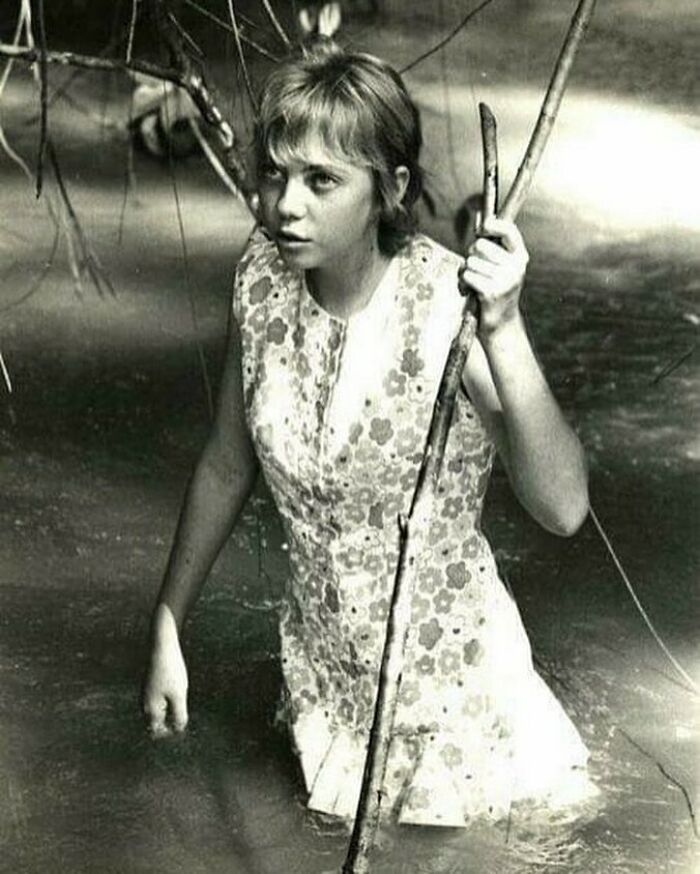
Image credits: historyphotographed
#2 Syrian Student Sader Issa, Who Is Training To Be A Dentist, Was Raised By A Dad Who Has Down’s Syndrome
His father, Jad, has the genetic condition where a person has three copies of chromosome 21, instead of the usual two copies, leading to learning disabilities and delayed development. The condition hasn’t meant that Sadar’s childhood was lacking in love, support and guidance in any way. Dad Jad showered his only son with as much attention as he could and made sure he focused on his studies. The wheat factory worker has also become an important pillar of the community because of his selflessness. According to the Down’s syndrome society, if one parent has it, there is a 35% to 50% chance that the child may inherit the condition. Most men with the condition can’t have children while some women may be able to, making Sader and Jad’s story even more special. Sader said: ‘I’m proud of my father. Throughout my life, he has been the greatest support for me when I needed it.’

Image credits: historyphotographed
#3 Marriage Advice For Young Ladies From A Suffragette, 1918
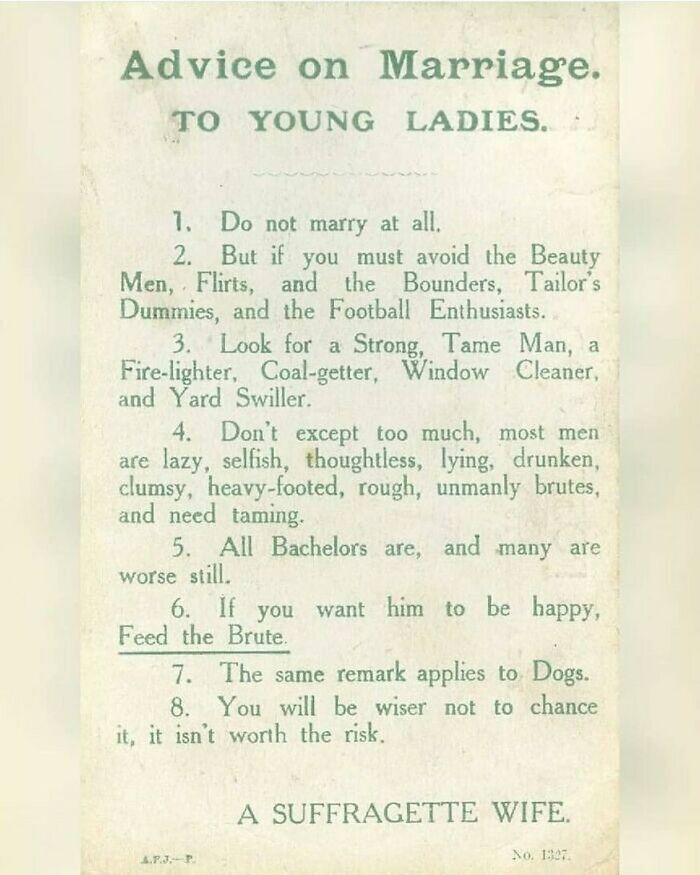
Image credits: historyphotographed
Before photography, we had images that were just the combination of someone’s artistic ability (or lack thereof) and some parchment or maybe a wall. For example, the first visual depiction of Jesus Christ might be a bit of graffiti found in 1st-century Rome. It depicts a donkey-headed humanoid being crucified with the caption “Alexandro worshiping his god.” While not quite the Far Side in terms of wit, it helps historians establish that a deified figure must have been crucified around the turn of the century.
These little tidbits of information are important as they help make the work of ancient historians more bearable. Until relatively recently, most written history was just the work of chroniclers and annalists who mostly made long lists of figures. Very important for modern historians to get a sense of scale, but drier to read than the tablets they were inscribed on.
#4 Argentina Has Won 3 World Cups. 1978 - 1986 - 2022

Image credits: historyphotographed
#5 "Everyone You Meet Always Asks If You Have A Career, Are Married Or Own A House As If Life Was Some Kind Of Grocery List. But Nobody Ever Asks If You Are Happy." - Heath Ledger

Image credits: historyphotographed
#6 Office Life Before The Invention Of Autocad And Other Drafting Softwares

Image credits: historyphotographed
The first historian, at least as far as modern humans might be concerned, was Herodotus of Halicarnassus, in the sense that he sought out primary sources and attempted to build a narrative from the events. On the other hand, he also enjoyed including folk tales and other mythology in his accounting of events. Very useful for modern scholars of Ancient Greek culture, but a bit less useful for understanding precisely what happened and how.
#7 A Divorced Couple Dividing Up Their Beanie Baby Collection In Court, 1990s
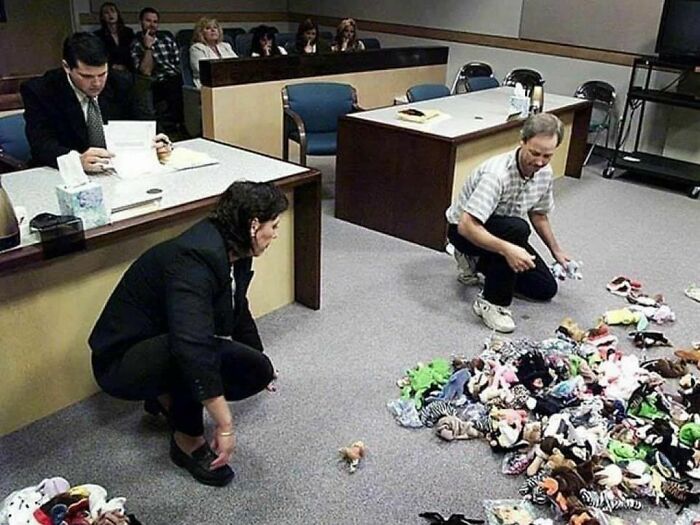
Image credits: historyphotographed
#8 The Girl Who Forgave Death, 1945 Eva Kor Was A Romanian/American Survivor Of The Holocaust
She was taken to the Auschwitz concentration camp in 1944. At the camp, her mother, father and two sisters were taken away upon arrival to be executed. Eva had this to say: "I never even got to say goodbye to her. But I didn't really understand that this would be the last time we would see her" Eva and her sister Miriam were spared as they were twins, and they were sent to be experimented on by Josef Mengele, the Nazi Angel of death. Eva and Miriam would go through months of medical torture. They were injected with unknown liquids which modern doctors can't figure out. Both girls became very sick, and Eva suffered from a fever for 5 weeks. Eva was so sick that she could not walk and was given 2 weeks to live, however she fought through the experiments and the pain and kept telling herself "I must survive, I must survive". In 1945, the camp was liberated by the Soviet Army, and Eva and her sister returned to Romania. In 1950, Eva moved to Israel and served in the army for 8 years. She then moved to the USA in 1960, and married a man named Michael Kor, who was also a Holocaust survivor. Eva suffered from health problems as she grew older, however Miriam showed complex and severe medical issues during her 3 pregnancies. It was discovered that Miriam's kidneys did not grow since she was 10. Miriam's kidneys failed, and Eva speculated this was due to the experimentation they went through as children. Eva donated a kidney to her sister and said: "I have one sister and two kidneys, so it was an easy choice." Sadly, Miriam died in 1993 due to kidney cancer. Filled with anger at what the Nazis had done to her and her family, Eva went on to campaign for recognition of the Holocaust. However, Eva made her emotional journey about forgiveness, and in the 1990s, she forgave Mengele and the Nazis for the pain they had caused. In 2019, Eva passed away. In the picture above, she shows a picture of herself in Auschwitz with her sister Miriam standing beside her to her left in the hood.
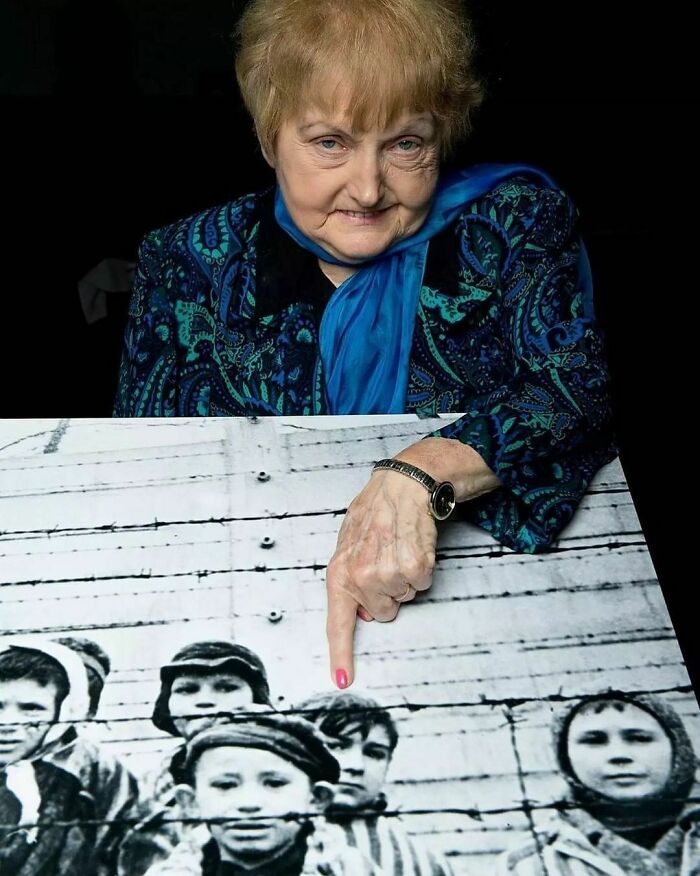
Image credits: historyphotographed
#9 During Wwii, Jews In Budapest Were Brought To The Edge Of The Danube, Ordered To Remove Their Shoes, And Shot, Falling Into The Water Below. 60 Pairs Of Iron Shoes Now Line The River's Bank, A Ghostly Memorial To The Victims
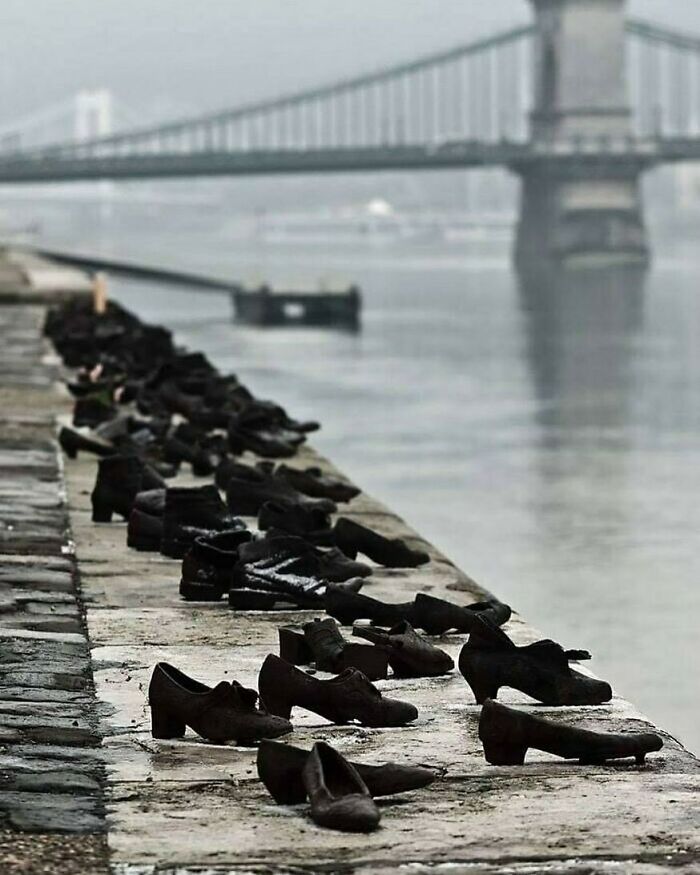
Image credits: historyphotographed
Despite his flaws and flights of fantasy, the use of narrative is still common among modern historians. English historian Lawrence Stone believed that readers could better understand an event when it followed the structure of a story. We don’t tend to think of human decisions as existing in a vacuum. As you scroll through these images, notice how your mind starts to construct an understanding of what is going on before you have even read the description. The human mind loves a good narrative.
#10 Winter Proofing New Russian Babies, Moscow, 1958. They Believe That The Cold, Fresh Air Boosts Their Immune System And Allows Them To Sleep Longer
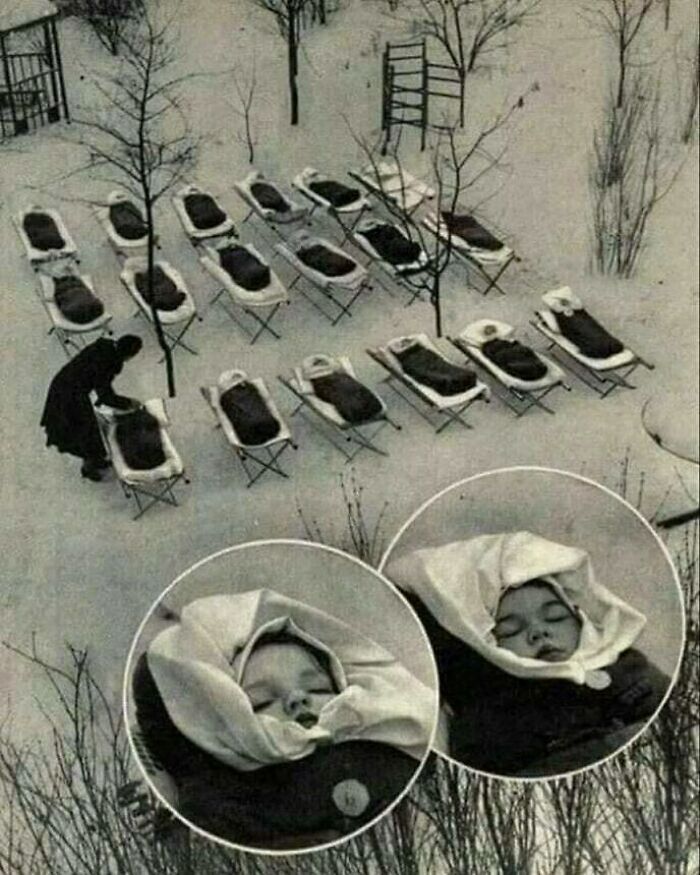
Image credits: historyphotographed
#11 Vietnam War Helmet Graffiti, 1960's-1970's

Image credits: historyphotographed
#12 This Horse Was Considered To Be The World’s Largest Horse In 1940, Brooklyn Supreme The Belgium Stallion Weighed Over 3,200 Pounds
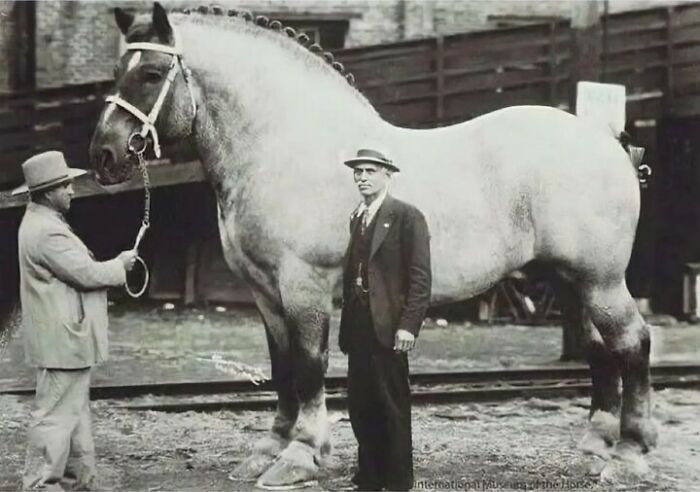
Image credits: historyphotographed
Even when the first cameras were more readily available (though not at all common), the time and material requirements often limited what early photographers could actually take pictures of. This is why old war photos tend to focus on the dead and battlefields after a battle. Corpses tend to not move around a lot, unlike people, so the camera can actually capture the images. This had the interesting side effect of possibly changing perceptions of war, as the most common images from a conflict depicted death and destruction.
#13 This Lovely Couple Celebrated Their 59th Anniversary By Recreating Their Wedding Photos And She Even Wore The Same Dress! Congratulations
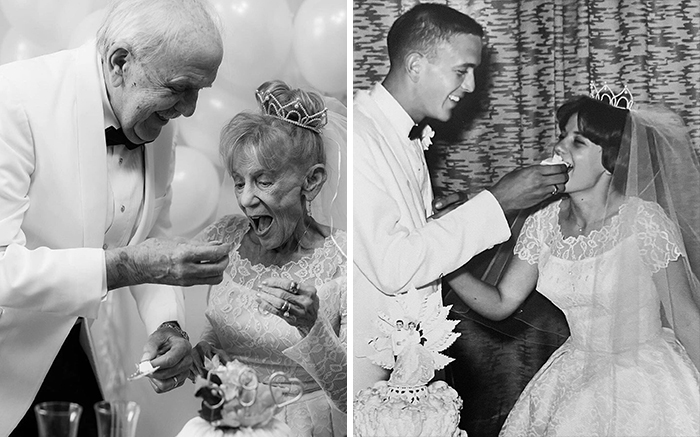
Image credits: historyphotographed
#14 Love Is Eternal, 1972 Found In The West Azerbaijan Province Of Iran In 1972
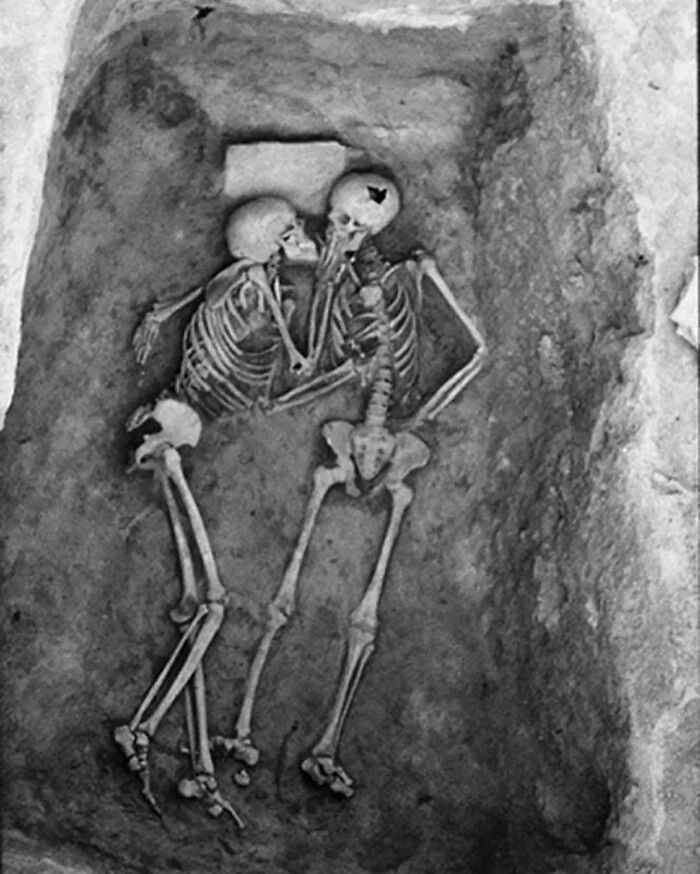
Image credits: historyphotographed
#15 Safety Standards, 1960s

Image credits: historyphotographed
Humans do develop thicker skin the longer they are exposed to something and we all have a bit of morbid curiosity. As camera technology developed, photographers could get closer to the frontline, yielding more dynamic images, at a greater risk to life and limb. Robert Capa, possibly best known for his images taken on D-day, died covering the First Indochina War when he stepped on a landmine. If you want to see some more interesting historical pictures, check out our other articles here, here, and here.
#16 Salvador Dali Taking His Anteater For A Walk In Paris, 1969
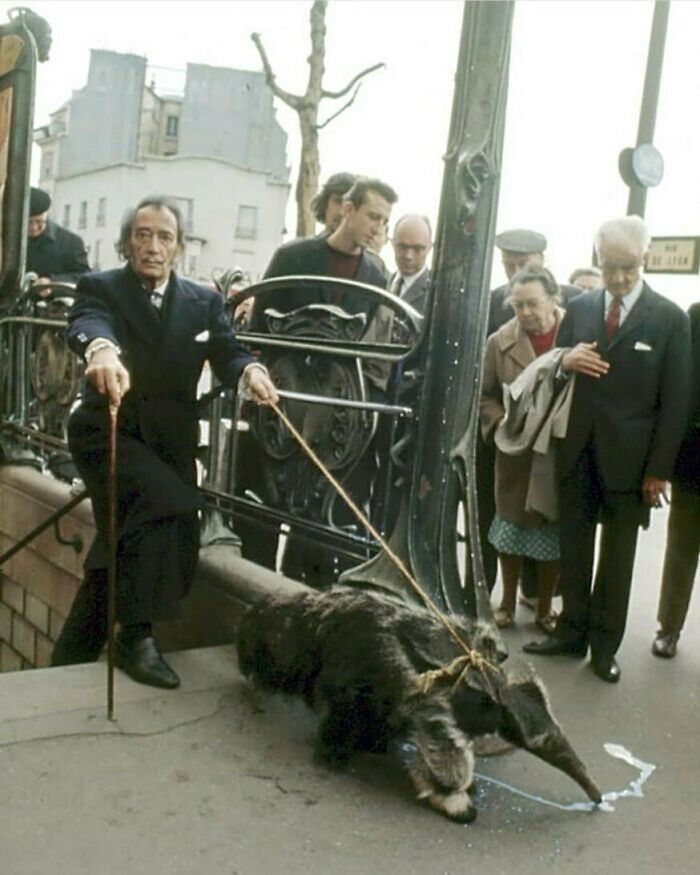
Image credits: historyphotographed
#17 The Real-Life Peaky Blinders
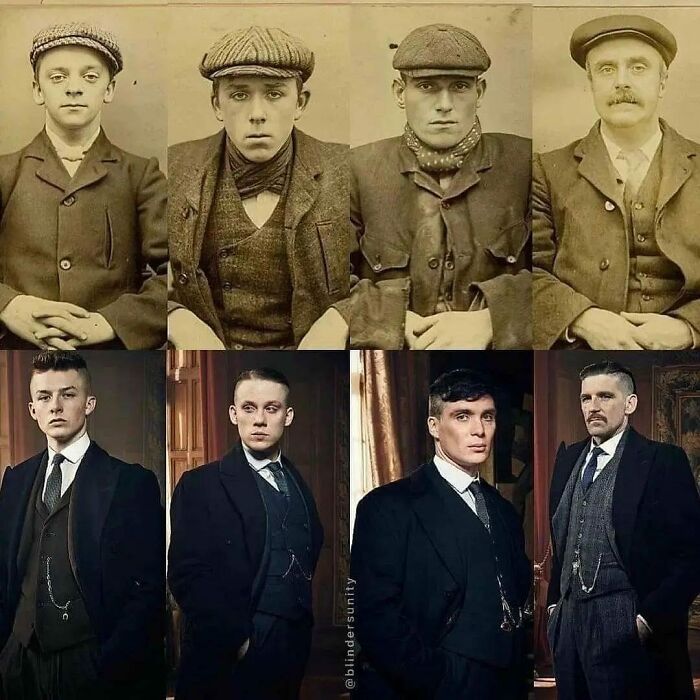
Image credits: historyphotographed
#18 Longest Serving Monarch In British History

Image credits: historyphotographed
#19 The Boy Who Became The Symbol Of Hope
hope, 2010 Diego Frazão Torquato was a boy who was born in Brazil in 1997. He was welcomed into the world in the slums of Parada de Lucas, a place corrupted by crime and disease. At the age of 4, he was hospitalized for meningitis and pneumonia. These were so severe that he struggled with memory problems. From a young age, Diego wanted to learn how to play the violin as he believed it would take him across the world. He was introduced to the orchestra called Afroraggae, which was coordinated by Evandro João Silva and was established to stop young children from falling into the terrible hands of crime. Sadly, Silva would be murdered in downtown Rio. Extremely saddened by the loss of his hero, Diego, who was sick and weak, played the violin at Silva's funeral to honor him, which is the image you see above. Tragically, Diego died a short time after this picture was taken as he suffered from a cardiac arrest brought on by an infection he got from undergoing a surgery for his appendix. Diego also had luekimia at the time of his death too. At Diego's funeral, José Júnior has this to say about Diego: " I think the legacy of Diego is hope, it is the willingness to change, to transform." Diego was only 12 years old. He is now known in his area as the symbol of hope, an inspiration to all people that no matter how bad your circumstances are in your life, fight all that you can to make it better, and to make tomorrow a better day. Written and shared by @revivedhistory - an independent history page
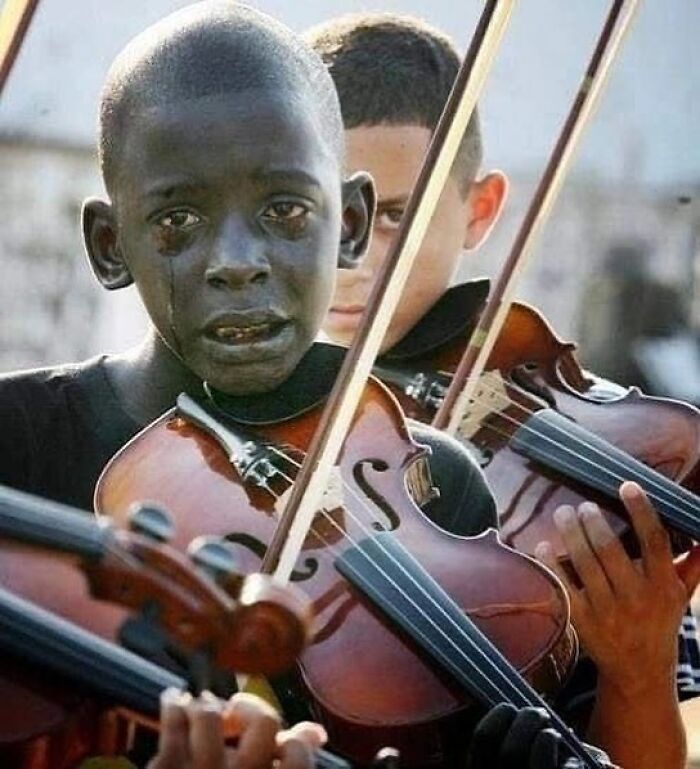
Image credits: historyphotographed
#20 A Portrait Of Jesus Christ Was Created Using Artificial Intelligence By Combining Traditional Iconography With Information About Jesus' Ethnicity And Culture During The Time And Region In Which He Lived

Image credits: historyphotographed
#21 “I'd Much Rather Eat Pasta And Drink Wine Than Be A Size Zero.” - Sophia Loren 1965

Image credits: historyphotographed
#22 An Interesting Color Pencil Store In Tehran, Iran. 1990

Image credits: historyphotographed
#23 In The 1940s, Men Dressed In Shorts And Cowboy Boots Served Up To Women At A Drive Through In Dallas, Texas "Log Lodge Tavern"
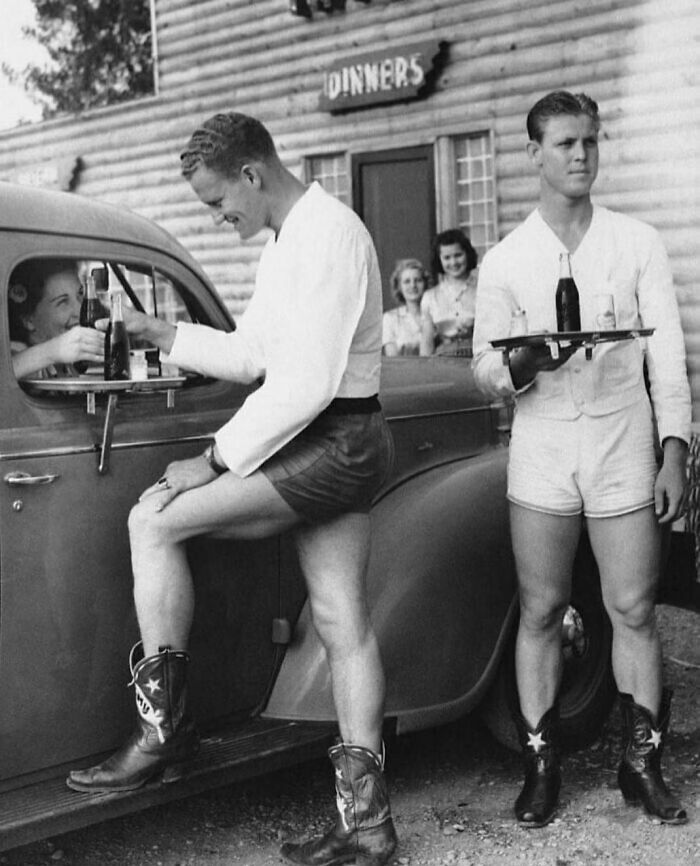
Image credits: historyphotographed
#24 It’s Nice To Know That Over 145 Years Ago People Were Taking Silly Pictures Of Their Pets. 1875
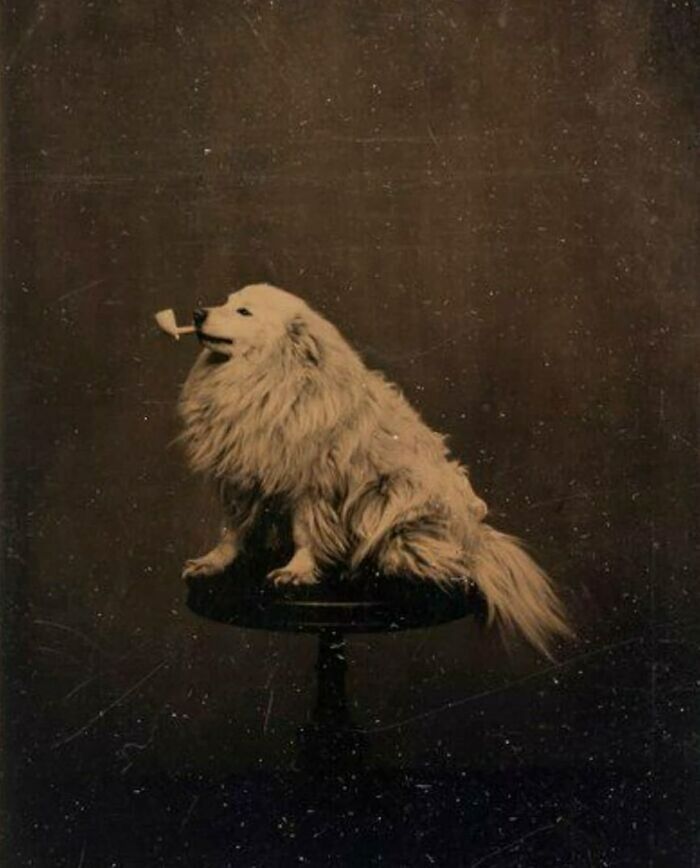
Image credits: historyphotographed
#25 Evil Meets Power, 1996 A Black Women Salutes A Kkk Member With A Closed Fist, Which Is A Symbol Of Black Resistance Against Racism And Oppression

Image credits: historyphotographed
#26 Power To The People, 1970

Image credits: historyphotographed
#27 Photo Of Bored 4-Year-Old Charles At Queen Elizabeth's Coronation, 1953
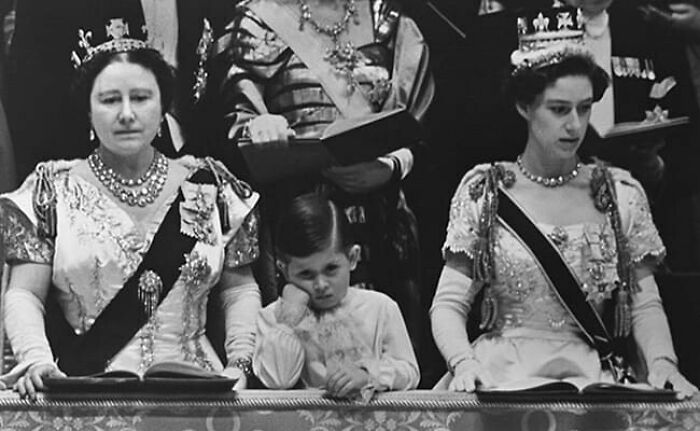
Image credits: historyphotographed
#28 Spanish Flu, 1918. Family Portrait
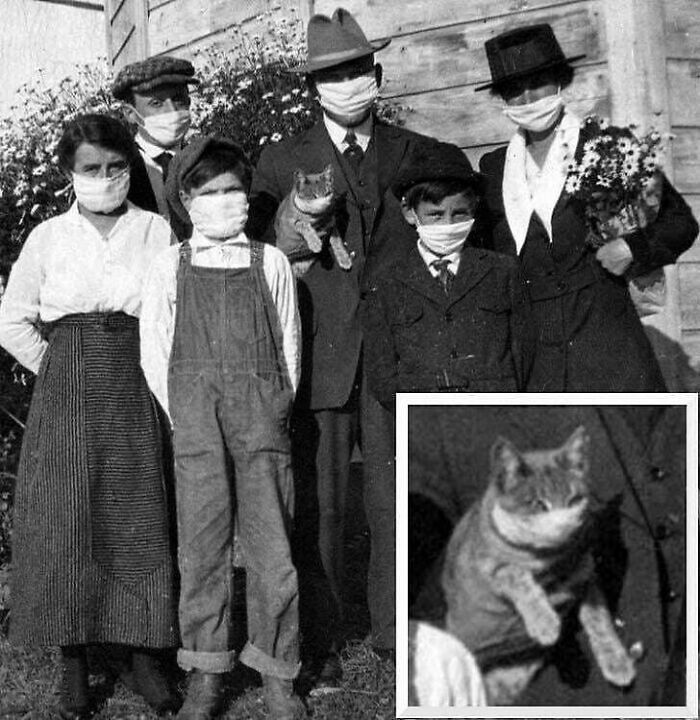
Image credits: historyphotographed
#29 The Eyes That Saw The End Of The World, 1945 A Picture Of A Blind Japanese Girl Who Lost Her Sight Due To Witnessing The Atomic Bomb Attack On Hiroshima On August 6th, 1945
The blast killed 66,000 people. Despite the atomic bombs forcing a Japanese surrender, the USA has been heavily criticized over the years for the amount of damage they caused. They also mostly killed civilians, who most likely had nothing to do with the war. It was also a stance against communist aggression by the USSR in Manchuria. However, if the bombs were not dropped, an invasion of Japan would have prolonged the war, and at least 2,000,000 US troops would have died, according to calculations, as well as millions of the Japanese, allied fighters, and other sources of soldiers. It is easily one of the most divisive topics of World War II if the bombs should have been dropped or not. This has been only 1 out of 2 nuclear attacks in history. Let's hope it stays that way.

Image credits: historyphotographed
#30 Three Young Women Eat Spaghetti On Floaties, Capri, Italy, 1939
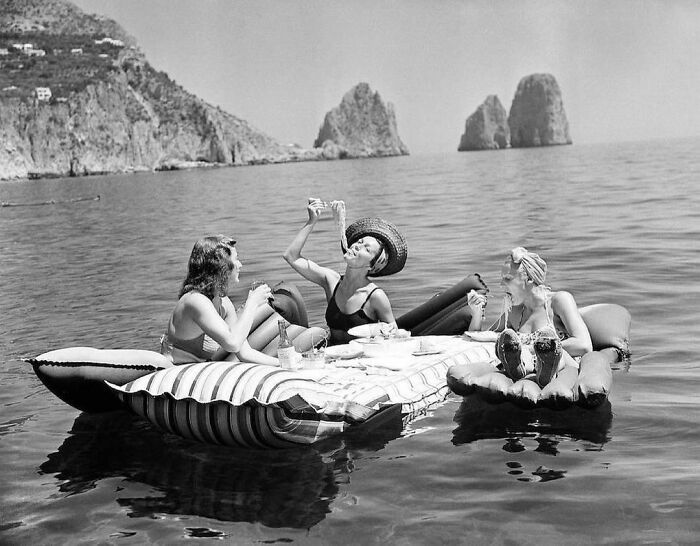
Image credits: historyphotographed
#31 An Upset Little Patient After A Visit To The Dentist, 1920s
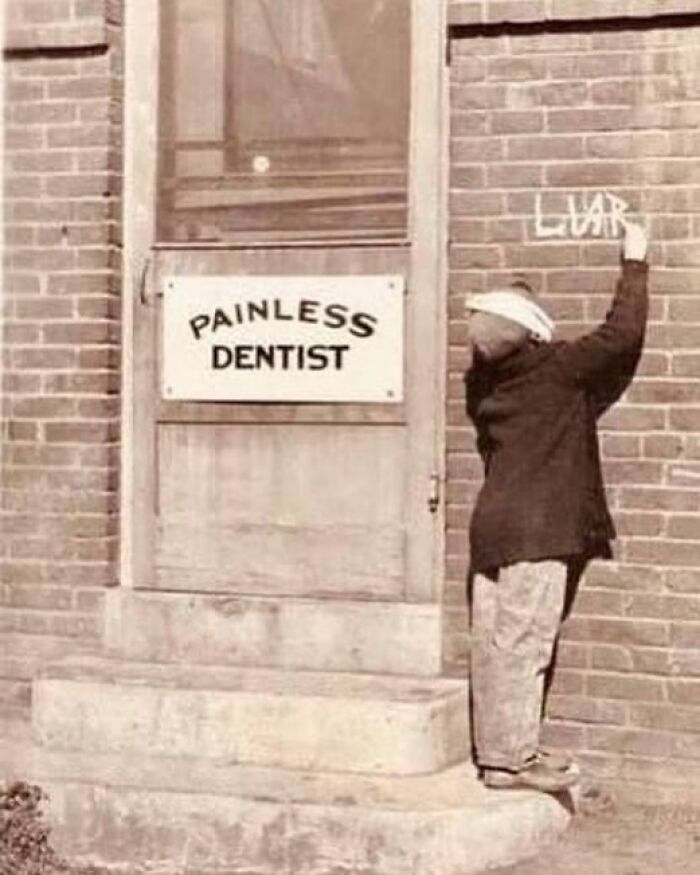
Image credits: historyphotographed
#32 Vintage Photographs Of Pacific Southwest Airlines Flight Attendants From The 1960s And 1970s

Image credits: historyphotographed
#33 28-Year-Old Marcy Borders, Who Worked At The Bank Of America Located In The World Trade Center And Survived Its Collapse, Is Photographed Completely Covered In Dust
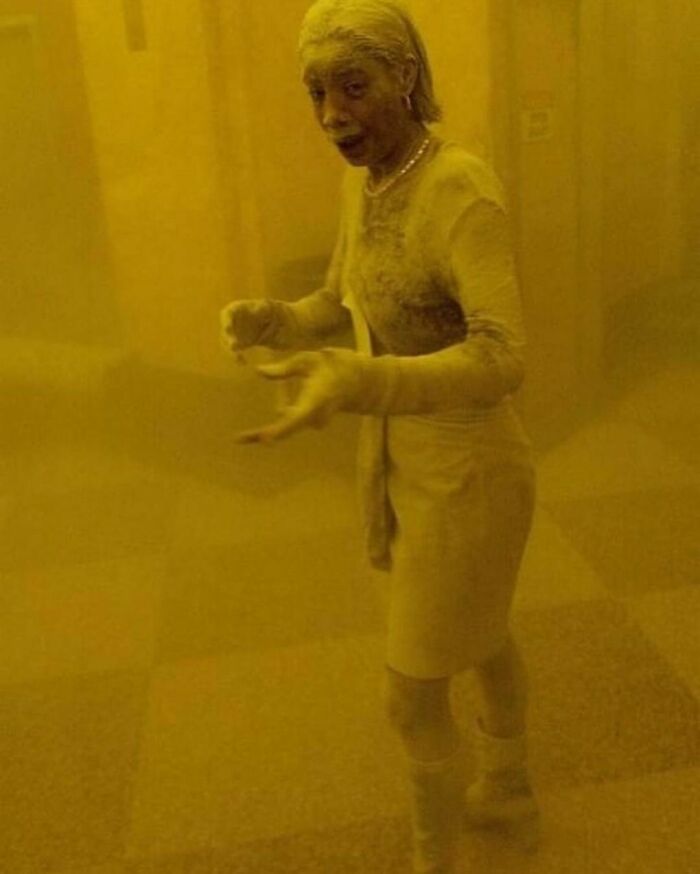
Image credits: historyphotographed
#34 10 Photos Of Dutch People In Traditional Clothing, 1900
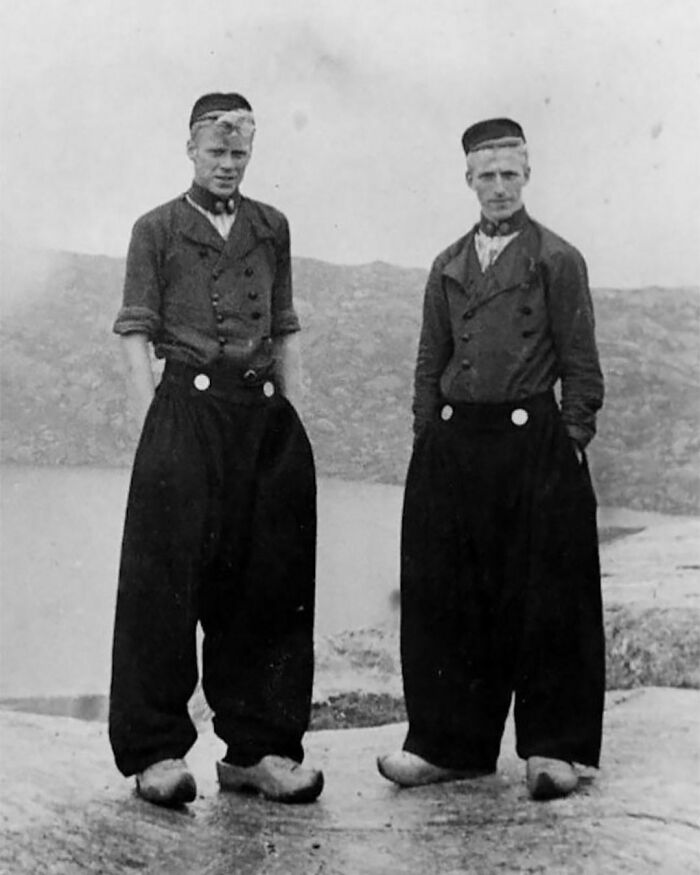
Image credits: historyphotographed
#35 Home Prices In 1950s

Image credits: historyphotographed
#36 Princess Diana Shakes Hands With An Aids Patient Without Gloves, 1991
At the time, this was a groundbreaking thing to do. Many people did not fully understand how AIDS was spread, and so many of those who had it had to spend time alone in AIDS wards. Diana visited a number of these wards to visit the patients. She had this to say about her feelings towards the patients : "I had always wanted to hug people in hospital beds," she told Morton. "This particular man who was so ill started crying when I sat on his bed and he held my hand and I thought: “Diana, do it, just do it,” and I gave him an enormous hug. It was just so touching because he clung to me and he cried." What a beautiful thing to do
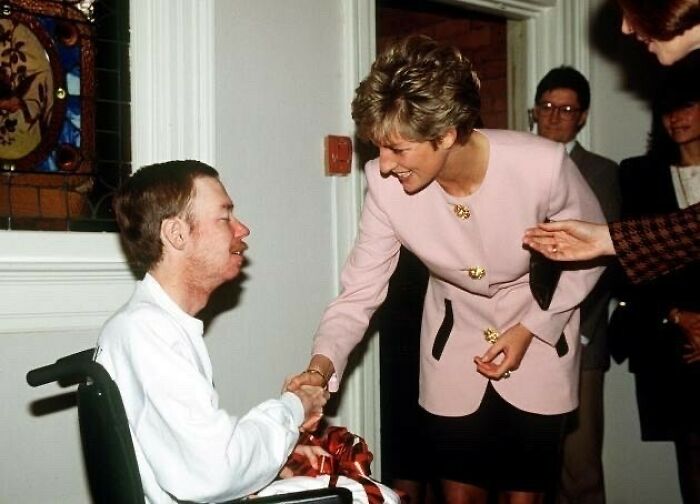
Image credits: historyphotographed
#37 Marilyn Monroe And Her Husband Arthur Miller Photographed At Their Home In Amagansett, 1957
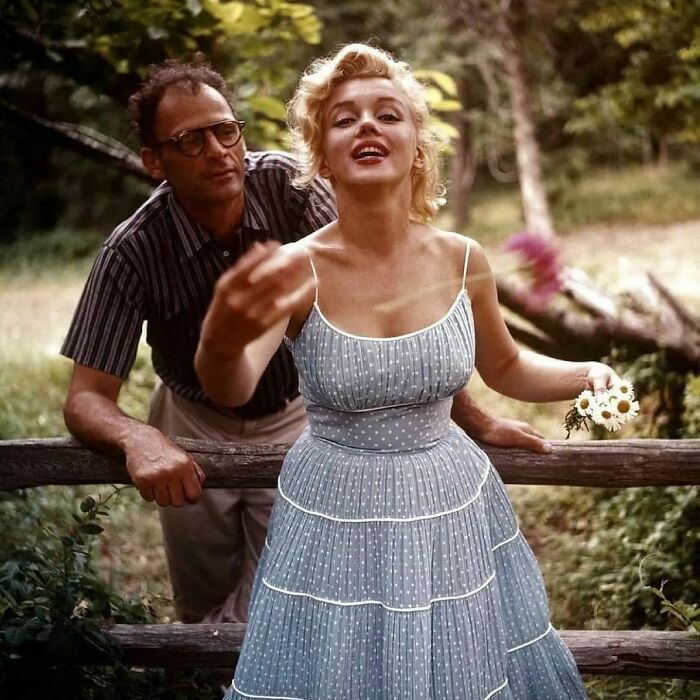
Image credits: historyphotographed
#38 Behind The Scenes Photos From The Making Of The Film 'Jaws', 1975

Image credits: historyphotographed
#39 The Eyes Of Hate, 1933 Josef Goebbels, The Minister Of Propaganda For Germany During World War 2, And One Of The Most Notorious Anti-Semites In History, Looks At His Photographer With A Sinister Expression, After Just Learning That The Photographer Is Of Jewish Descent
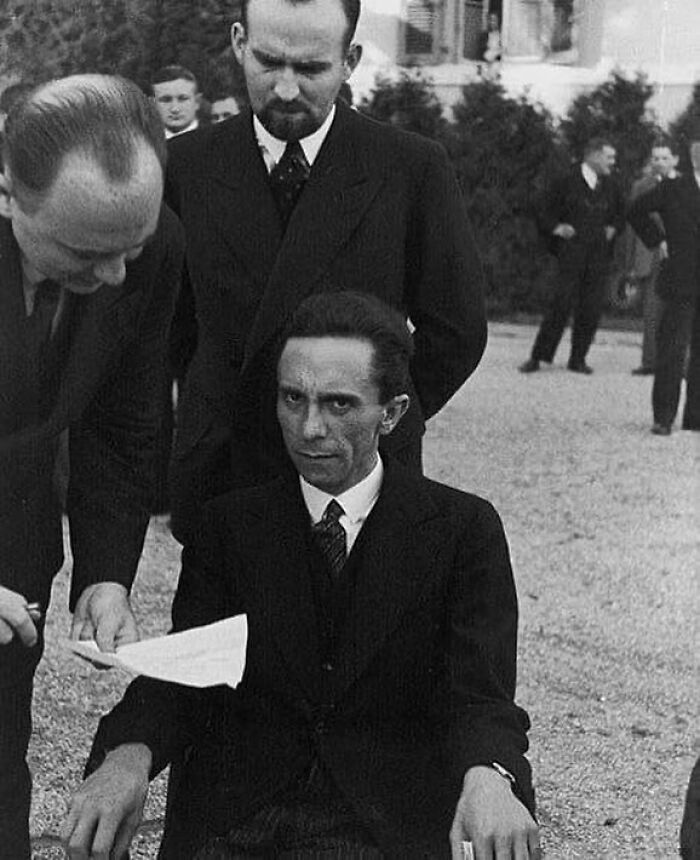
Image credits: historyphotographed
#40 On September 25, 1986, The City Of Cleveland, Ohio, Released 1.5 Million Balloons As Part Of A Charity Event Called "The Great Balloon Race."
The event was organized by the Cleveland Clinic Foundation, a non-profit academic medical center, to raise money for children's health care. The balloon release was a key part of the event, and it attracted widespread media attention and large crowds. The balloons were released from the Cleveland Stadium, home of the Cleveland Browns football team, and they were intended to drift across the city and beyond. However, the balloon release sparked controversy and backlash, as many of the balloons ended up causing litter and environmental damage. In the aftermath of the event, the Cleveland Clinic Foundation faced criticism for the environmental impact of the balloon release, and it vowed to take steps to prevent similar incidents from happening in the future. Despite the controversy, the Great Balloon Race was considered a success in terms of raising money for children's health care, and it remains a significant event in the city's history.

Image credits: historyphotographed
#41 Behind-The-Scenes Photos From Titanic, 1997
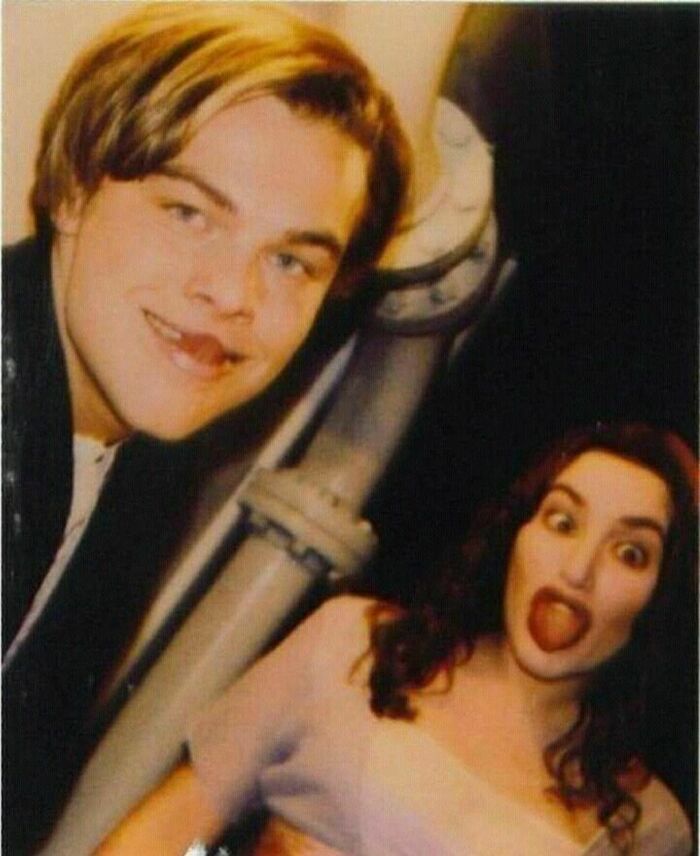
Image credits: historyphotographed
#42 A Policeman Issues A Ticket To A Woman For Wearing A Bikini, 1957
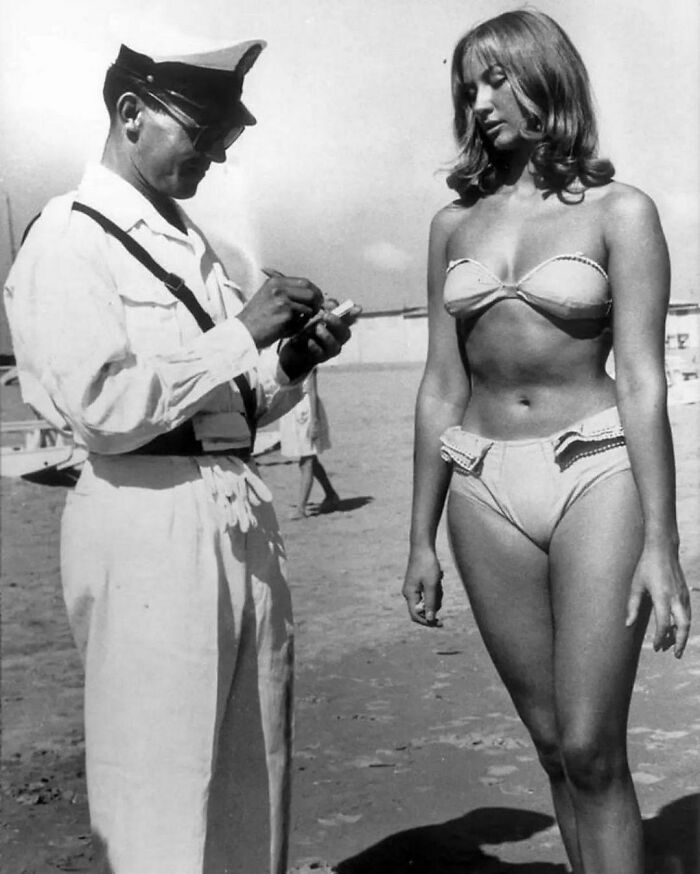
Image credits: historyphotographed
#43 Rome ?? In The 60’s Was A Vibe”
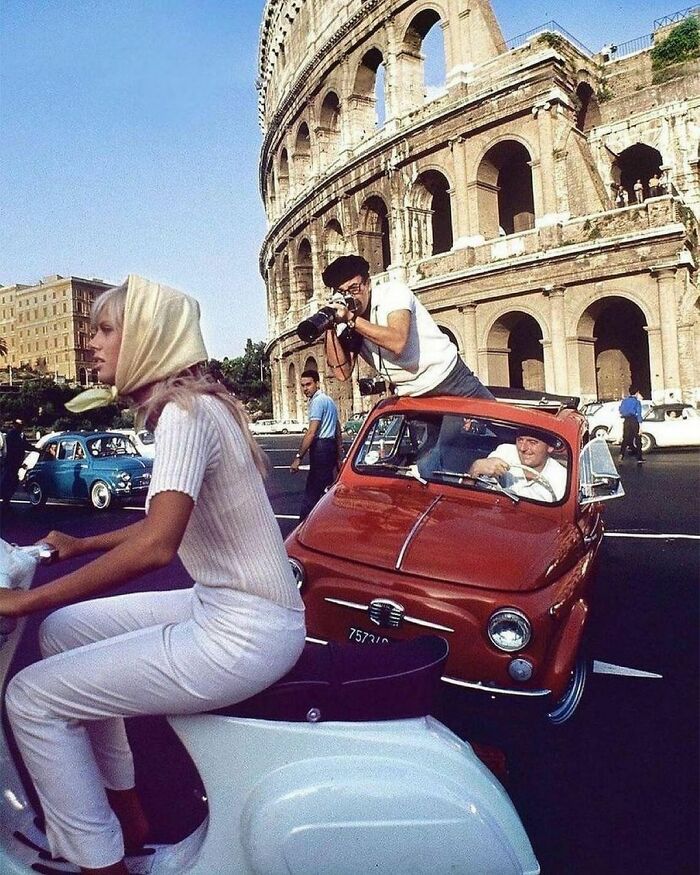
Image credits: historyphotographed
#44 A Note A Husband With Dementia Wrote For His Wife
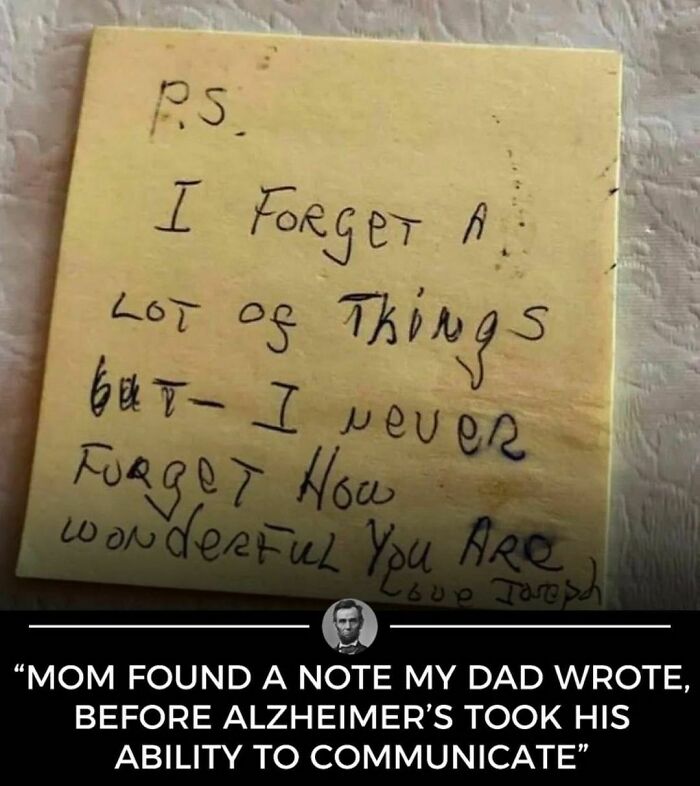
Image credits: historyphotographed
#45 The Woman With The Handbag, 1985
This picture, which was taken in Växjö, Sweden, shows 38-year-old Danuta Danielsson smashing her handbag into the head of a neo-fascist rally member. Danielsson was of Jewish and Polish heritage, and her mother survived being held captive in a concentration camp. Danielsson chose to be anonymous after the picture as she feared she would be the target of other neo-fascists. She was known to have suffered from mental health problems and took her own life in 1988 by jumping off the town's water tower. The man Danielsson hit is Seppo Seluska, a neo-fascist who went on a few years later to torture and murder a gay jew. Seluska was with a small group of neo-fascists, who were protesting on the streets after a local communist politician gave a speech. This led to a clash between the communists and the fascists, in which other people on the street who were not involved with either group sided with the communists to fight the fascists. In 2014, Danielsson's identity was released, and a statue was unveiled to honor her courage against the face of hate.
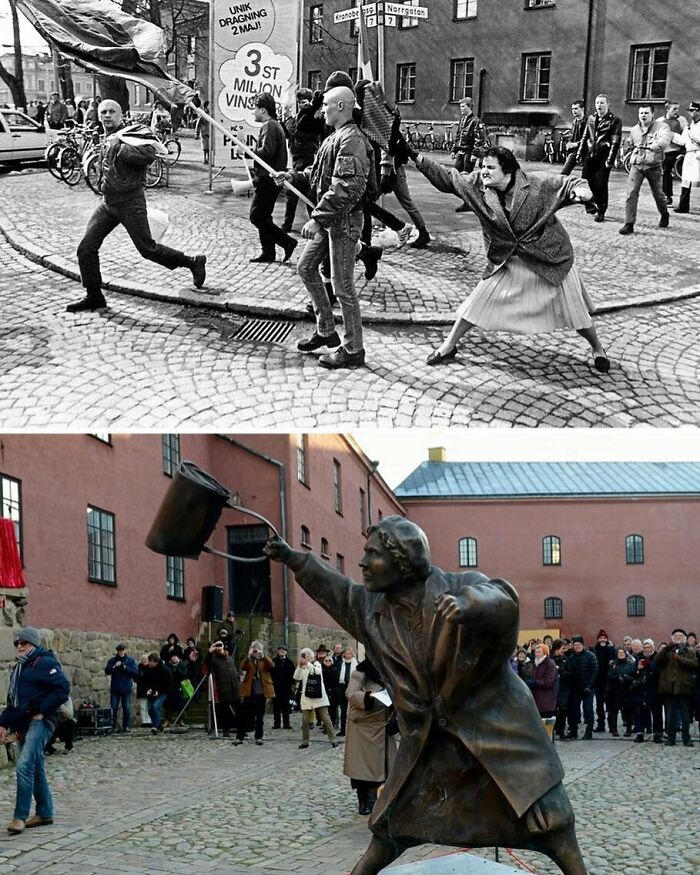
Image credits: historyphotographed
#46 André The Giant On A Plane Traveling To Japan, 1980

Image credits: historyphotographed
#47 A French Woman Walks The Streets Of Paris France With Her Baguette And Six Bottles Of Wine, 1945. Photo By Branson Decou
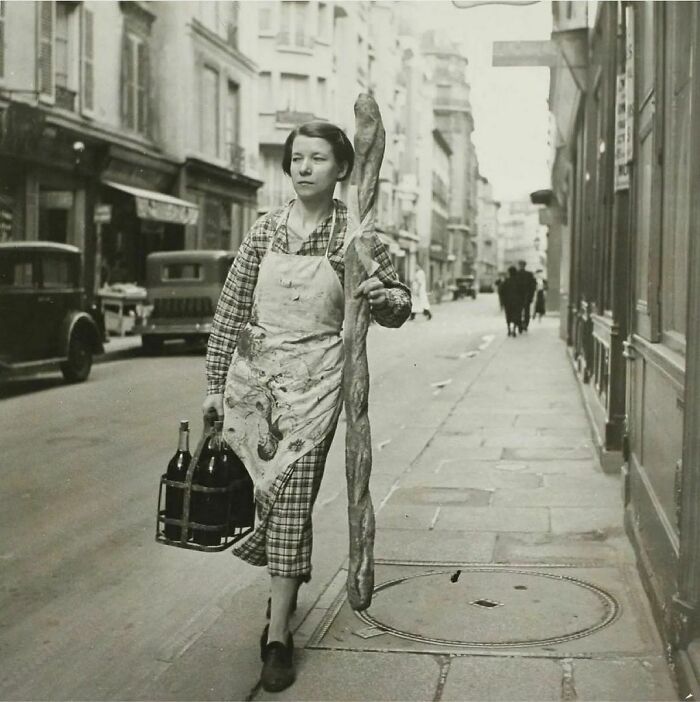
Image credits: historyphotographed
#48 Power And Beauty, 2014. In 2014, A City In Iran Called Isfahan Was The Location Of A Number Of Brutal And Horrific Acid Attacks Against A Number Of Women
An acid attack is a form of physical violence. It involves a person throwing acid on a victim, usually targeting their face in order to deliberately cause disfiguration to the body. Acid attacks have primarily seen a rise in the Middle East / India in the last few years. Cases usually involve males attacking ex lovers. Isfahan saw at least 8 acid attacks in 2014. It is speculated that 2 males on a motorbike are to blame. They covered their faces and have never been identified for their crimes. It is debated as to what the motivation behind the attacks was. Some Iranians speculate that it had to do with the progression of women in Iran, as many of the women targeted were driving cars or were not wearing traditional Islamic attire. Other theories about the attackers range suggest that they were radical Islamic extremists to hardline misogynists. The woman above is Marziyeh Ebrahim. She suffered extensive injuries due to being a victim in one of the acid attacks. However, Ebrahim did not let her scars shape her, but rather, she defined them. Ebrahim is now a political activist, who heavily advocates for women's rights and awareness around acid attacks. She is considered to be one of the strongest activists in Iran, and in 2019 she helped to pass a law that outlawed acid attacks.
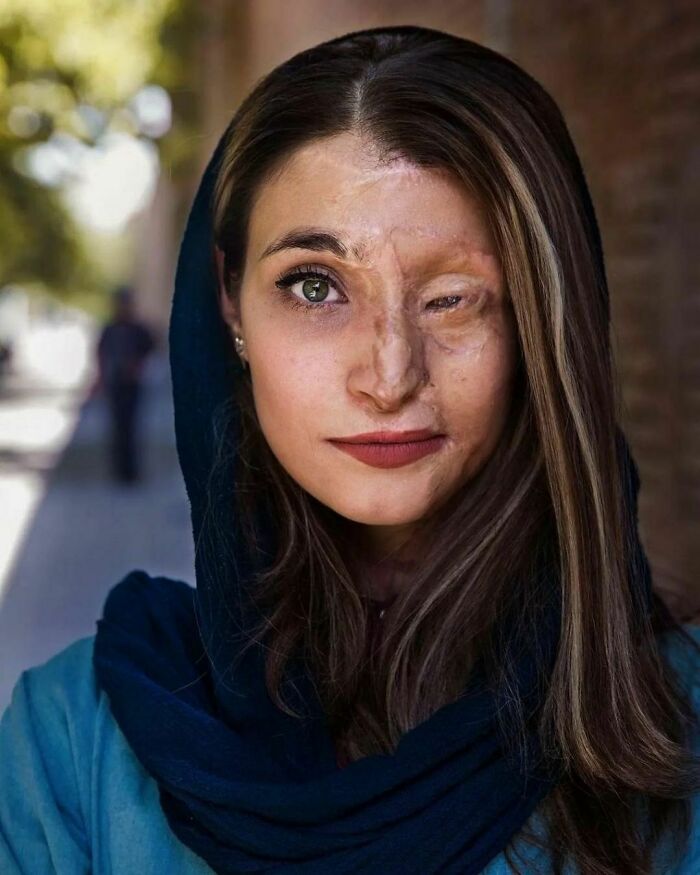
Image credits: historyphotographed
#49 Sacheen Littlefeather Who Refused To Accept An Oscar On Marlon Brando Behalf In 1973 Has Finally Received And Apology From The Academy

Image credits: historyphotographed
#50 Niagra Falls Has Frozen A Few Times In History

Image credits: historyphotographed
#51 The African American Teenager Who Saved The Life Of A White Supremacist, 1996
1996 Keshia Thomas was an 18 year old high-school student who took part in an anti KKK rally in her home town of Ann Arbor, Michigan. The town had a large African American community, and hundreds showed up to show resistance to the KKK Klansmen group who were holding a rally themselves. Keshia was in the crowd, when someone spotted a suspicious man, who was wearing a confederate T-shirt and had a SS tattoo (facist symbol tattoo) passing through the Anti-KKK supporters. The crowd began to run after the man to scare him off, however some of the crowd became violent and began to beat the man to the ground. Keshia saw what was going on and in an later interview she said: "Mob mentality had taken over. It became barbaric. When people are in a crowd they are more likely to do things they would never do as an individual. Someone had to step out of the pack and say, 'This isn't right'. When they dropped him to the ground, it felt like two angels had lifted my body up and laid me down". Keshia defended the man from the attackers. She then had this to say: "I knew what it was like to be hurt," she says. "The many times that that happened, I wish someone would have stood up for me. But violence is violence - nobody deserves to be hurt, especially not for an idea. Keshia then said that she never heard from the man, but months later at a coffee shop, a younger man approached her and said thanks. "What for?" she asked. "That was my dad," said the young stranger. For Keshia this was the greatest reward knowing she had stopped the violence and hatred from spreading to further generations. "For the most part, people who hurt... they come from hurt" said Keshia. It is a cycle. Let's say they had killed him or hurt him really bad. How does the son feel? Does he carry on the violence? The biggest thing you can do is just be kind to another human being. It can come down to eye contact, or a smile. It doesn't have to be a huge monumental act." Written and shared by @revivedhistory - an independent history page.

Image credits: historyphotographed
#52 Bride Leaving Her Recently Bombed Home To Get Married, London, Nov 4, 1940
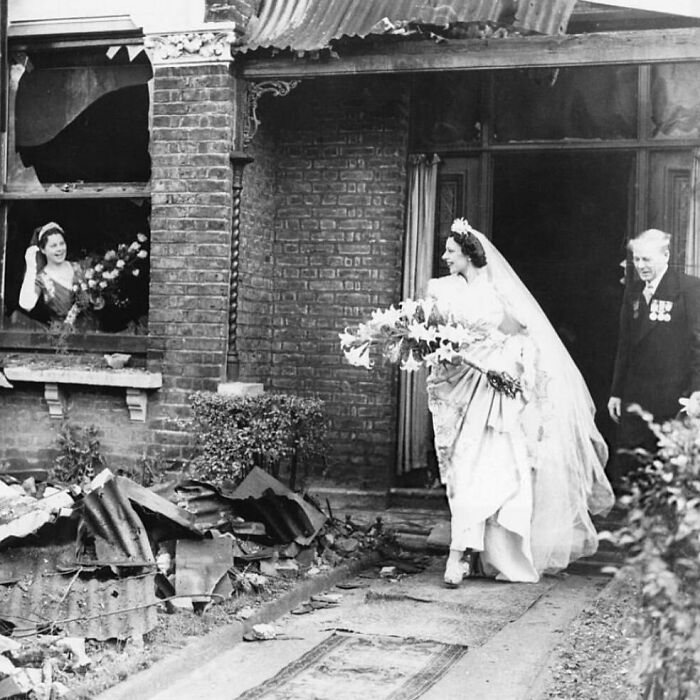
Image credits: historyphotographed
#53 Rosemary Kennedy, The Sister Of John F. Kennedy, Had An Iq Of 60-70, A Fact That The Family Went To Great Lengths To Conceal
When she was 23 years old and becoming "rebellious," her father, Joseph Kennedy Sr., became concerned that she might bring shame to the family. He learned about a new medical procedure that he hoped would calm her down. This procedure was a lobotomy. During the lobotomy, one of the surgeons said, "We went through the top of the head... She had a mild tranquilizer. I made a surgical incision in the brain through the skull. It was near the front. It was on both sides. We just made a small incision, no more than an inch. We put an instrument inside..." At this point, they began using a butter-knife-like object to make blunt cuts to her brain. The surgeons stopped the procedure when Rosemary became incoherent and could no longer respond to their questions. After the lobotomy, her mental capacity decreased to that of a 1-2 year old. She eventually regained the ability to walk, but with a limp, and never regained the ability to speak coherently. She also became incontinent. Rosemary lived for another 63 years, passing away at the age of 86 in 2005
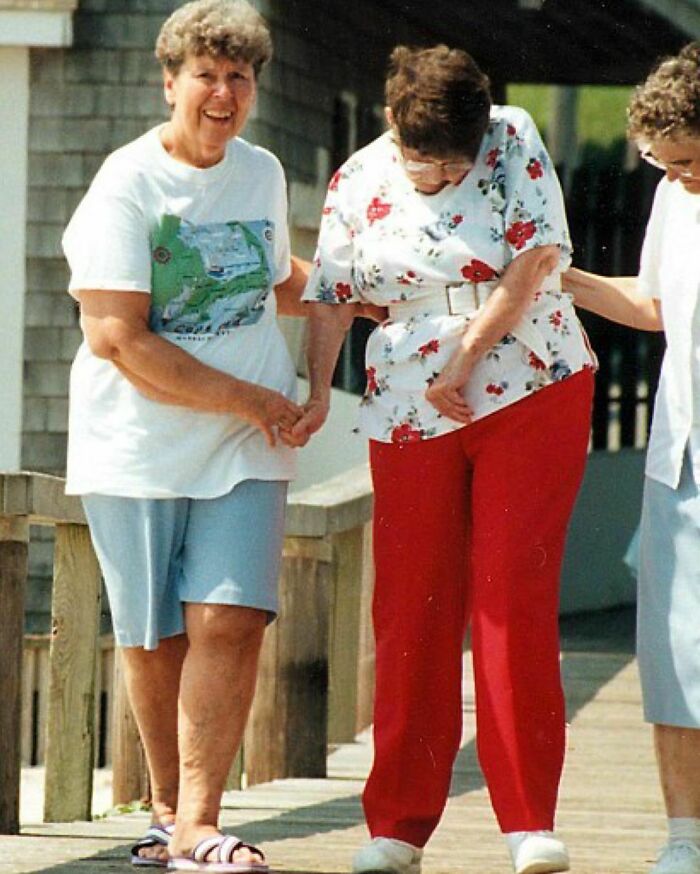
Image credits: historyphotographed
#54 In 1899, Adam Rainer Was Born In Austria. He Has A Unique Place In Medical History As The Only Individual Who Has Ever Been Both A Dwarf And A Giant
Rainer was significantly shorter than the normal person from birth until adulthood; at age 19, he stood at barely 3 feet, 8 inches. However, at the age of 21, a lesion on his pituitary gland caused him to have a growth spurt that made him nearly seven feet tall in just 10 years.
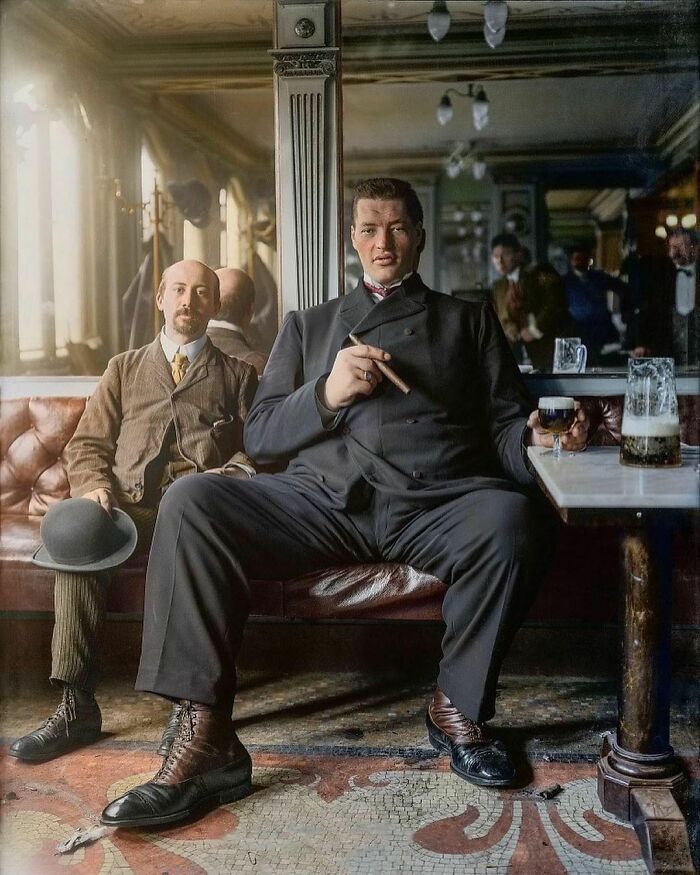
Image credits: historyphotographed
#55 Robbin Williams As A Cheerleader For The Denver Broncos, 1979
Robin Williams joined the cheerleading squad for a live game at Mile High Stadium in front of over 70,000 fans on November 11, 1979. The Denver Broncos defeated the New England Patriots 45-10. Robin dressed as Mork from Ork from the popular TV show "Mork and Mindy," which was filmed and based in Boulder, Colorado. He was dressed as a cheerleader, complete with white knee-high cowboy boots, a sequined mini skirt and top, an orange scarf, and gloves. Robin Williams holds the distinction of being the NFL's first male cheerleader.

Image credits: historyphotographed
#56 Iran ?? Before The Revolution (1970s)

Image credits: historyphotographed
#57 Startled Bystander At The Annual Sydney Gay & Lesbian Mardi Gras Parade, 1994
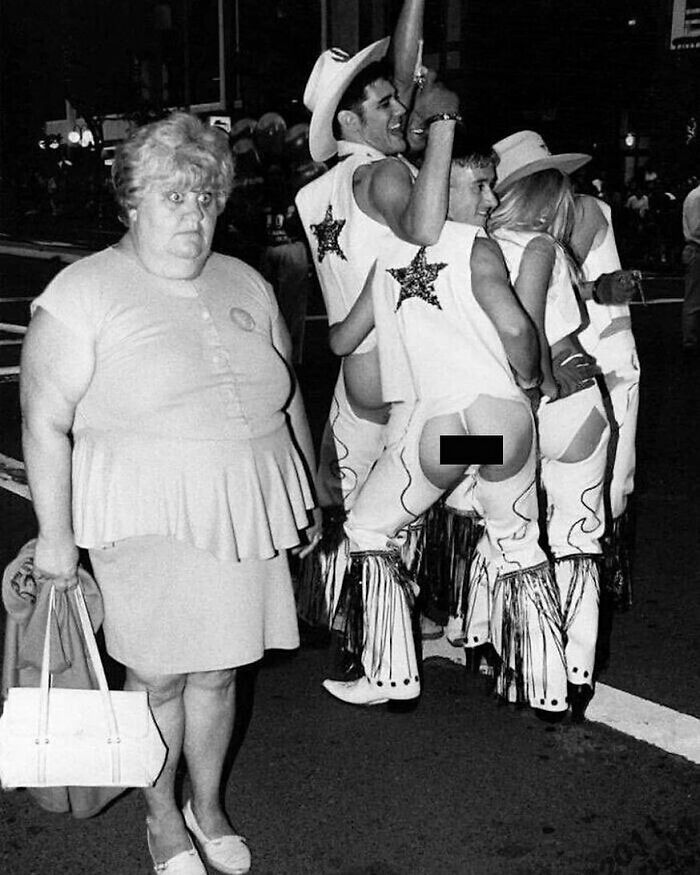
Image credits: historyphotographed
#58 Dr Zbigniew Religa Completes The First-Ever Heart Transplant In Poland, 1987
The surgery took 23 hours to complete. Dr Religa is looking at the vitals monitor, and at the right of the picture, you can see his assistant on the floor in the corner asleep due the procedure being so exhausting. The procedure was considered to be near impossible at the time, but they went ahead with it anyway against medical odds. The difficulty of the surgery can be seen with the mess and the number of tubes around the patient. The Polish health system at the time was considered to be one of the worst in Europe at the time so this was a massive achievement in medical history. The name of the patient was Tadeusz Żytkiewicz, who passed away 30 years later in 2017. He lived longer than Dr Religa, who died in 2009 due to lung cancer because he was a very heavy smoker. This picture has been voted to be 100 of the most important pictures in history by National Geographic. Żytkiewicz is seen below holding the iconic picture of himself on the operating table. One of humanity's finest moments. This is the first heart transplant in Poland, though the first heart transplant was originally done in South Africa in 1967 by Christian Barnard.
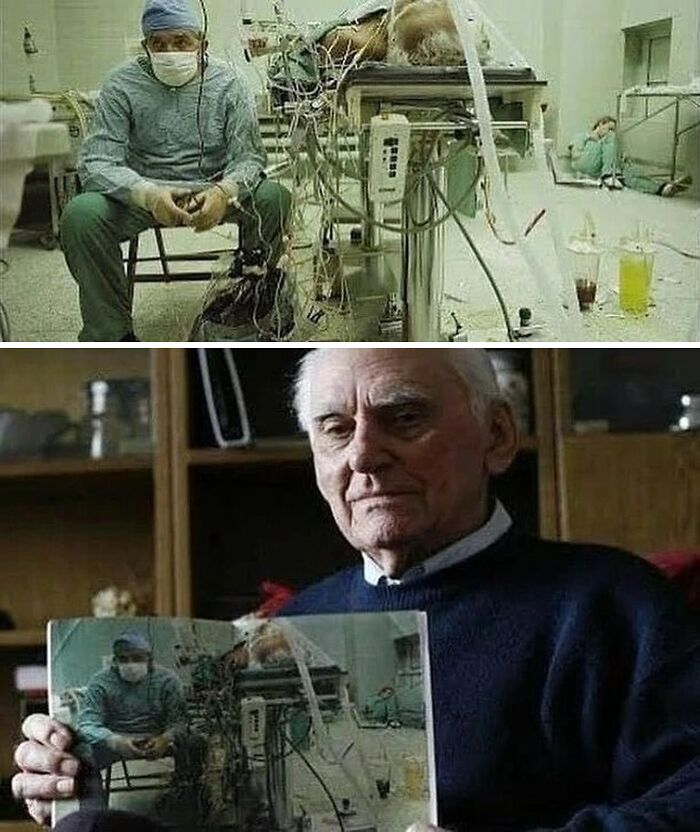
Image credits: historyphotographed
#59 The Indigenous People Known As The Huichol First Appeared In The High Highlands Of Central Mexico Some 15,000 Years Ago
According to their ancient traditions, both men and women would experience the pain of childbirth. This is how it would be done, the father would position himself on the rafters with rope tied around his scrotum while the mother would pull on it while giving birth.
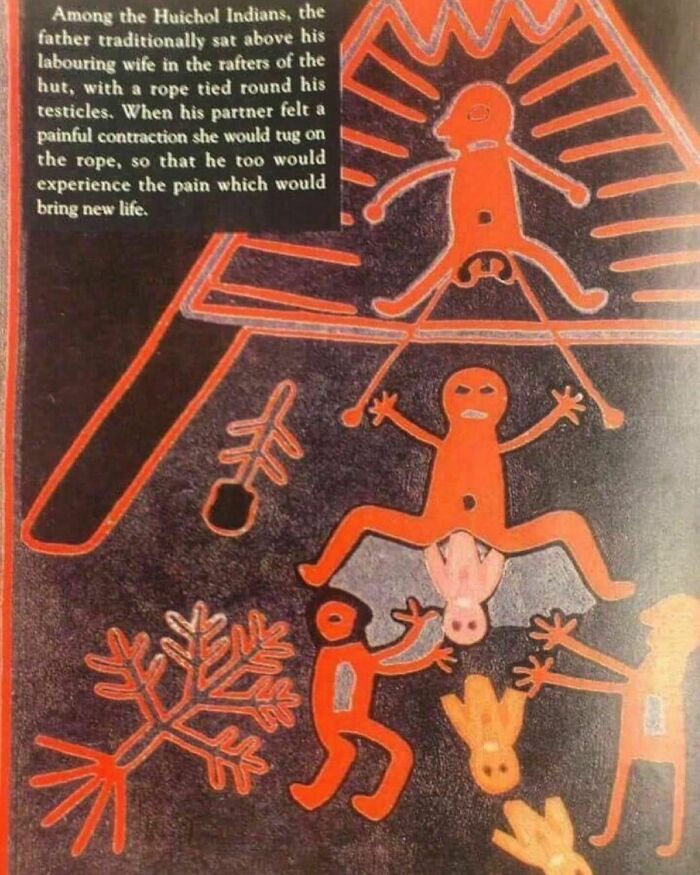
Image credits: historyphotographed
#60 She Was 11 When Wwi Started, 36 When Wwii Started, 74 When Star Wars Was Released, And 116 When Covid-19 Started
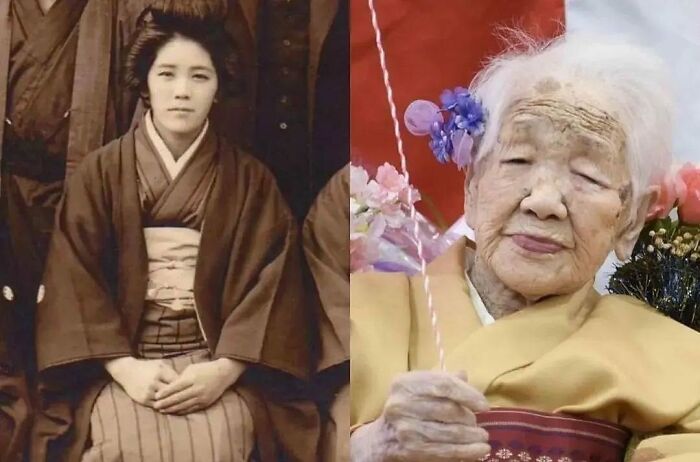
Image credits: historyphotographed
#61 Lady Florence Norman, A Suffragette, On Her Motorized Scooter In 1916, Travelling To Work In London
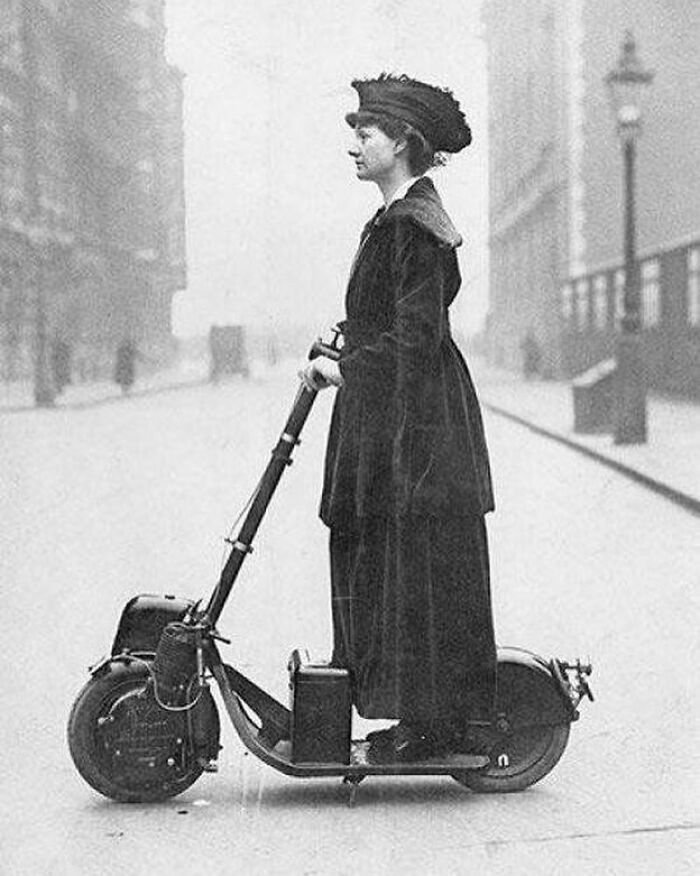
Image credits: historyphotographed
#62 106-Year-Old Armenian Woman Sits In Front Of Her Home Guarding It With A Rifle, 1990
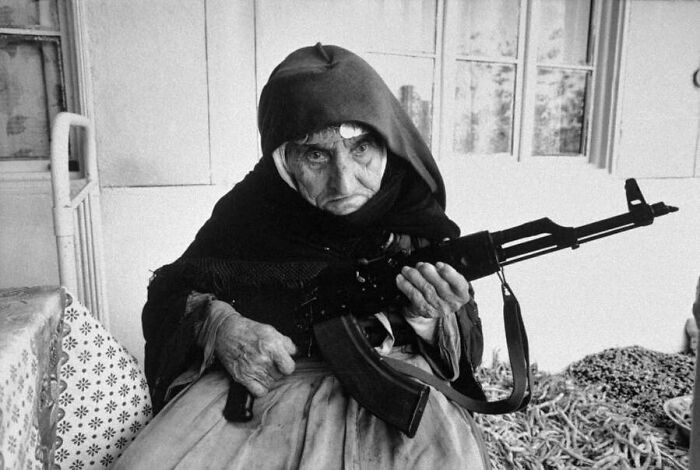
Image credits: historyphotographed
#63 French Knife Grinders Were Called Ventres Jaunes (“Yellow Bellies” In English) Because Of The Yellow Dust That Would Be Released From The Grinding Wheel. This Photo From 1902 Shows The Workers On Their Stomachs In Order To Save Their Backs From Being Hunched All Day
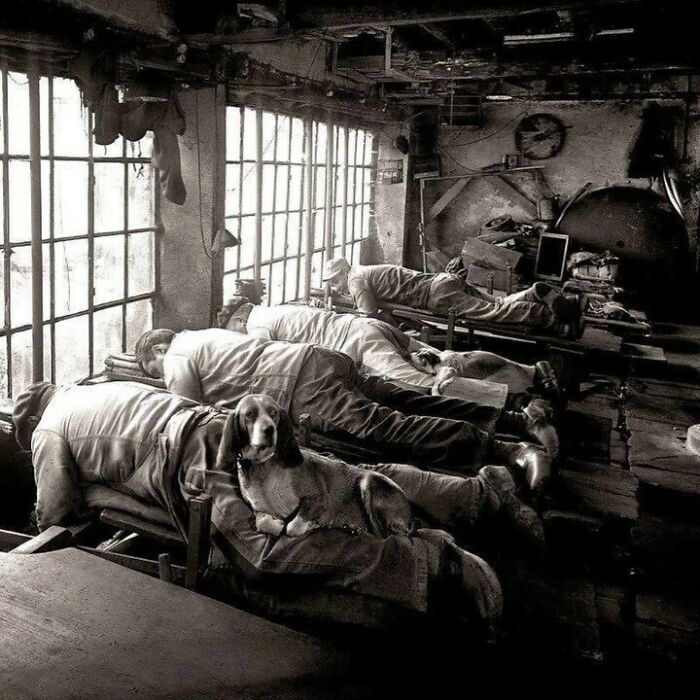
Image credits: historyphotographed
#64 Mehran Karimi Nasseri (Born 1946), Also Known As Sir Alfred Mehran,is An Iranian Refugee Who Lived In The Departure Lounge Of Terminal One In Charles De Gaulle Airport From 26 August 1988 Until July 2006, When He Was Hospitalized
His autobiography was published as a book, The Terminal Man, in 2004. Nasseri's story inspired the 2004 film The Terminal. Nasseri alleges that he was expelled from Iran in 1977 for protests against the Shah and after a long battle, involving applications in several countries, was awarded refugee status by the United Nations High Commissioner for Refugees in Belgium. This allegedly permitted residence in many other European countries. However, this claim has been disputed, with investigations showing that Nasseri was never expelled from Iran. Having one British parent, he decided in 1986 to settle in the UK, but en route there in 1988, his papers were lost when his briefcase was allegedly stolen.(Others indicate that Nasseri actually mailed his documents to Brussels while onboard a ferry to Britain, lying about them being stolen. Despite this setback, he boarded the plane for London but was promptly returned to France when he failed to present a passport to British immigration officials. He was initially arrested by the French, but then released as his entry to the airport was legal and he had no country of origin to be returned to; thus began his residence at Terminal 1.

Image credits: historyphotographed
#65 The Short-Faced Bear Is An Extinct Ancient Bear That Lived In North America 11,000 Years Ago

Image credits: historyphotographed
#66 Beautiful People Of Iran! Stay Strong, Change Is Coming! Keep Fighting!

Image credits: earthpix
#67 Scientists Examine A 15-Year-Old Mummy Known As “La Doncella,” Who Lived In The Inca Empire
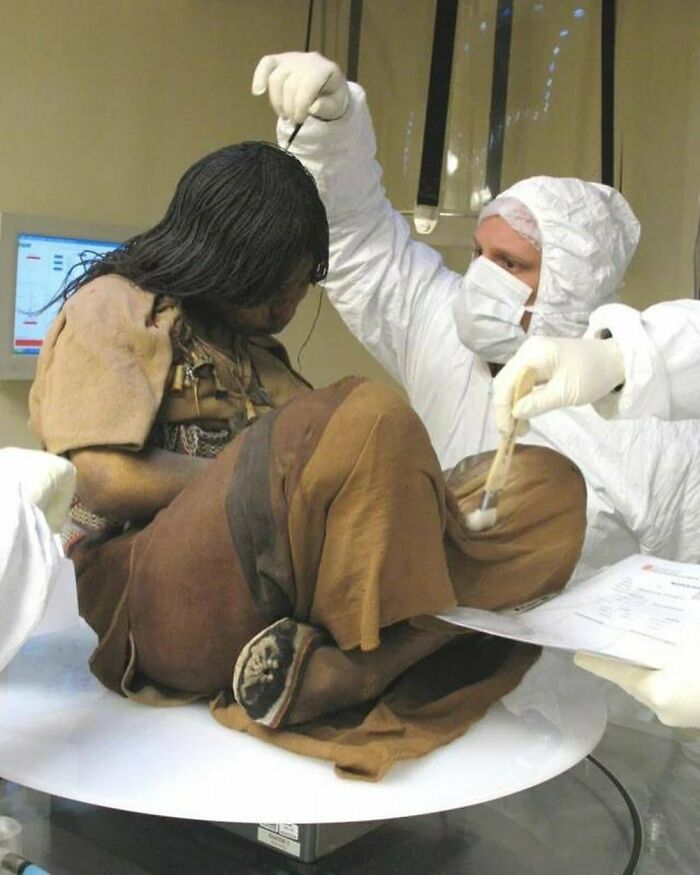
Image credits: historyphotographed
#68 A Couple Who Had Been Married For 79 Years Died 20 Hours Apart
Hubert and June Malicote were a happily married couple who had been together for over 70 years. They met as teenagers and fell in love, and they spent the rest of their lives devoted to each other. Despite their advanced age, they were still very active and enjoyed traveling, gardening, and spending time with their children and grandchildren. One day, Hubert fell ill with a serious illness. June was by his side every step of the way, caring for him and supporting him as he fought for his life. She refused to leave his side, even for a moment, and she made sure that he was comfortable and happy. Despite their best efforts, however, Hubert's condition continued to deteriorate. He passed away peacefully in his sleep, surrounded by his loved ones. June was devastated by his loss, but she knew that he was no longer suffering and that he was at peace. 20 hours later, June also passed away. It was as if she could not bear to live without her beloved husband, and she followed him into the next life. Their children and grandchildren were heartbroken by their loss, but they took comfort in the fact that the couple had been reunited in death. Hubert and June Malicote's love story was one for the ages. They spent their entire lives devoted to each other, and their love endured until the very end. They will always be remembered as an inspiration to others and a reminder of the power of true love.

Image credits: historyphotographed
#69 In The Late 1800s, A Baboon Was Officially Employed As A Railroad Signalman
He was paid in money and beer and never made a mistake. Jack was the pet and assistant of paraplegic signalman James Wide, who worked for the Cape Town-Port Elizabeth Railway service. James "Jumper" Wide had been known for jumping between railcars prior to an accident where he fell and lost both of his legs. To assist in performing his duties, Wide purchased the baboon named "Jack" and trained him to push his wheelchair and to operate the railways signals under supervision. An official investigation was initiated after a concerned member of the public reported that a baboon was observed changing railway signals at Uitenhage near Port Elizabeth. After initial skepticism, the railway decided to officially employ Jack once his job competency was verified. The baboon was paid twenty cents a day, and a half-bottle of beer each week. It is widely reported that in his nine years of employment with the railroad, Jack never made a mistake. After nine years of duty, Jack died of tuberculosis in 1890. His skull is in the collection of the Albany Museum in Grahamstown.
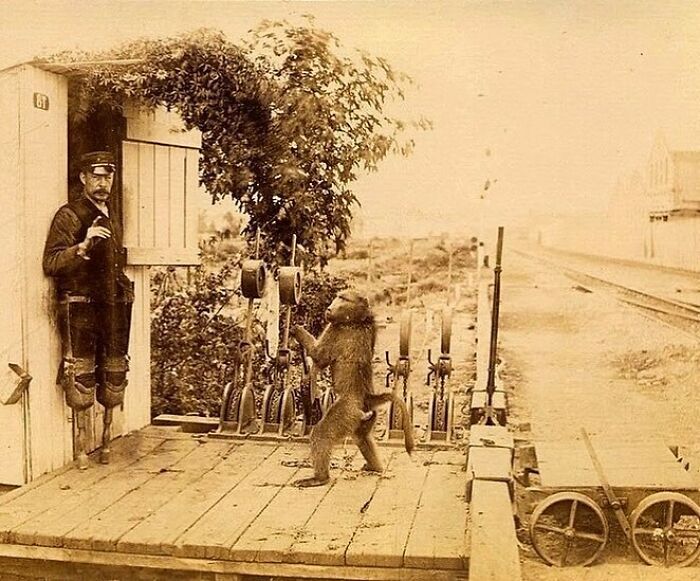
Image credits: historyphotographed
#70 Iran Before The Islamic Regime
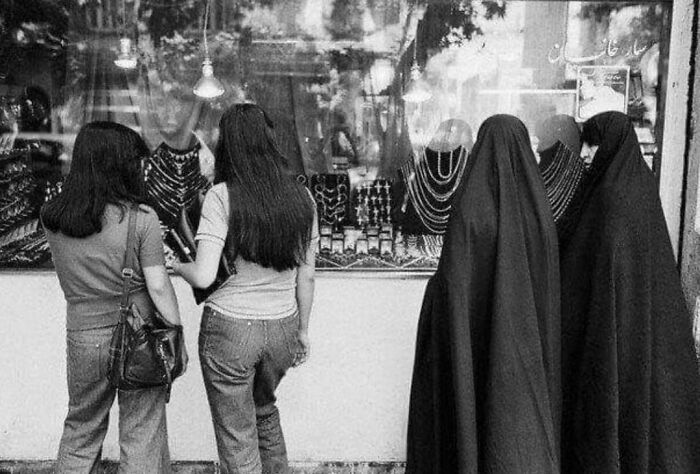
Image credits: historyphotographed
#71 Summers In Italy, 1980’s Photos By Slim Aarons

Image credits: historyphotographed
#72 Mugshot Of John Wojtowicz Who Famously Tried To Rob A Bank In 1972 To Pay For His Wife Eden’s Gender Reassignment Surgery
Wojtowicz had based his plans on the movie, "The Godfather" (1972) which he had watched earlier that day. His robbery attempt failed and he was arrested and sentenced to 20 years in prison of which he served five. His story was later turned into the movie "Dog Day Afternoon" (1975) starring Al Pacino and John Cazale, both of whom, interestingly enough, had starred in "The Godfather". For the rights to his story, Wojtowicz was paid $7,500, which he gave to Eden. Using the money from the movie, Liz was able to pay for her sex change. After her sex change, she married someone else before dying of AIDS-related pneumonia in 1987. John attended her funeral and delivered a eulogy.

Image credits: historyphotographed
#73 A Kangaroo Hits A Photographer For Trying To Photo, 1967
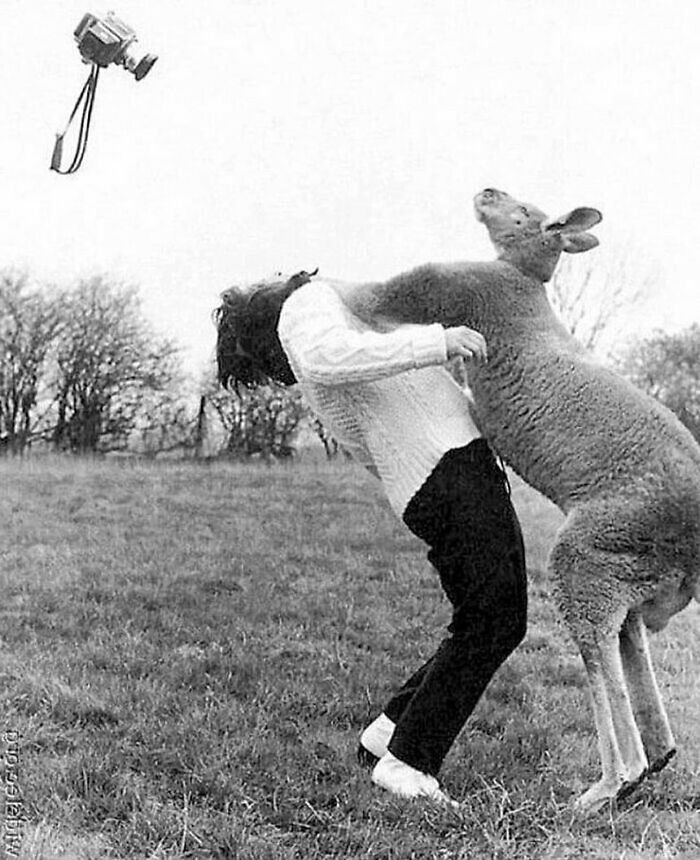
Image credits: historyphotographed
#74 Pamela Anderson In The 2000s

Image credits: historyphotographed
#75 Mom Uses A Trash Can To Contain Her Baby While She Crochets In The Park, 1969
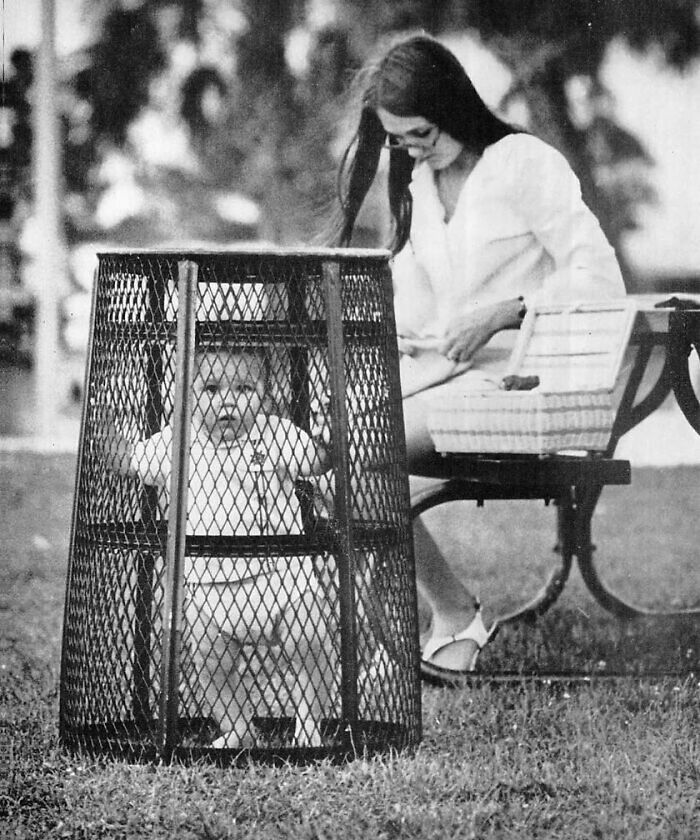
Image credits: historyphotographed
#76 A Man Guards His Family From Cannibals During The Madras Famine In India, 1877
Also known as the Great Famine of 1876-1878. The Great Famine of 1876-1878 was a period of widespread food shortages and famine that affected much of India. The famine is estimated to have resulted in the deaths of around 5.5 million people, mostly due to starvation and disease. It was caused by a combination of factors, including drought, infestations of locusts, and poor government policies. The famine led to widespread poverty and social upheaval, and it is considered one of the worst humanitarian disasters in India's history.
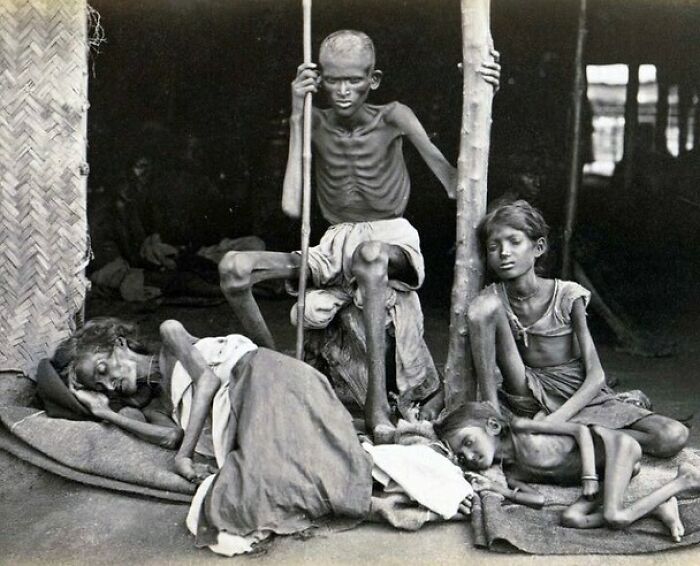
Image credits: historyphotographed
#77 School Shootings By Country 2022

Image credits: historyphotographed
#78 Verified The Bear Who Fought In World War II, 1945
Wojtek the bear was a soldier in the Polish army during World War II, who supported his comrades during the allied invasion of Europe. Here is his story: In 1942, Wojtek was bought from a young Iranian boy in a train station in Iran, by Polish civilians who were escaping the Soviet Union. He was then taken to a civilian camp nearby, where he was taken care of for 3 months before being donated to the 2nd transport Company, which later became the 22nd Artillery Supply Company. This is when Wojtek was given his name, which means "Happy Warrior" in Polish, for his friendly and playful personality. Wojtek was given condensed milk, fruit, marmalade, honey and syrup and was rewarded with cigarettes and beer, which became his favourite drink. He was taught to salute when greeted and enjoyed wrestling with the soldier and even slept with them during cold nights. He soon became an unofficial mascot for the troops and his regiment. By 1944, Wojtek weighed 90 kilograms (14 st; 200 lb). He helped his comrades during the Battle for Rome by carrying crates of shells. This claim has been disputed as being false, though some eyewitness accounts defend its legitimacy. Wojtek received the rank of Private, as well as his own wages, paybook and serial number. After the end of the war in 1945, Wojtek was transported to Scotland and was retired from the army in 1947. He spent the rest of his days in Edinburgh Zoo. He died in 1963, at the age of 21.
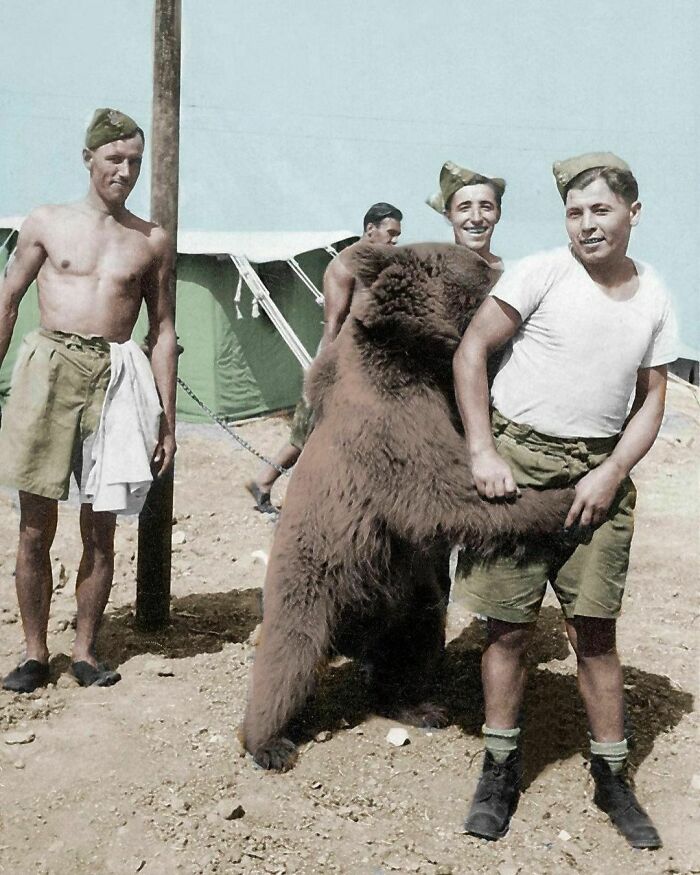
Image credits: historyphotographed
#79 The Shark Attacks Of World War II, 1945 The Uss Indianapolis Was A Flag Ship During World War II
ship during World War II. The ship is considered to be one of the most infamous ships of all time, because of what it's crew went through after the ship sank due to being struck by a Japenese torpedo. The ship saw extensive use during the war. It saw many battles against the Japanese, and took part in the bombardment of Iwo Jima. It even survived a direct kamikaze hit (suicidal pilot attack). The ship even took part in a top secret mission, which involved delivering parts of the atomic bomb that was used on Hiroshima. On July 30 1945 at 00:15, the ship was struck by two torpedos by the I-58 Japanese Submarine. 1,200 men were on board. The ship sank in 12 minutes with 300 men dying in that time frame. The rest of the crew clung on to the debris of the ship for the next 4 days in the water. They had to resist the heat from the sun, dehydration and hunger. It got so bad that some of the crew began to hallucinate. Some of the men even committed suicide in the water, as they believed that help would never arrive. The most grim part about the ordeal, was the fact that the men were being eaten by sharks. The sharks were attracted to the wreckage due to the shock waves and blood in the water. One sailor described the shark attacks as: "You were constantly in fear because you saw them all the time, but you never knew when they were going to attack you". It is estimated that the sharks ate about 150 of the men. This number of fatalities due to shark attacks was influenced by the crew in the water. Some of the crew had hallucinations due to dehydration and some of these men would turn very aggressive and would try to drown or kill other members in the water, so they were pushed away in hopes that the sharks would eat them to prevent human on human killings. The men were saved on the 4th day. Only 316 men survived the ordeal. It is considered to be the worst incident in American naval history
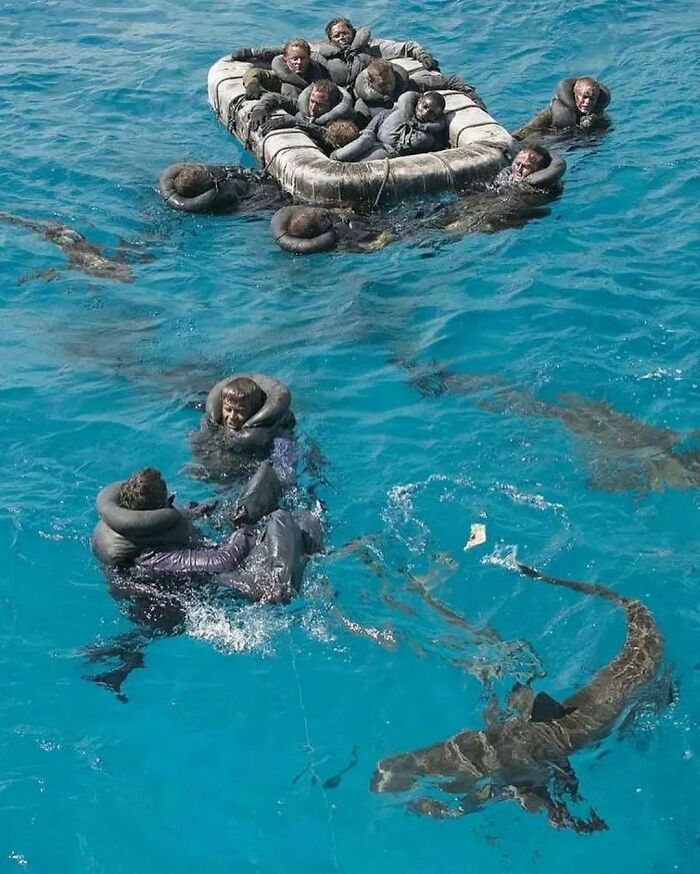
Image credits: historyphotographed
#80 Amar Bharati Is A Hindu Sadhu Who Raised His Right Hand In 1973 And Hasn’t Brought It Down Since. He Sees It As A Devotion To Lord Shiva And A Representation Of His Goal Of Bringing About Universal Peace
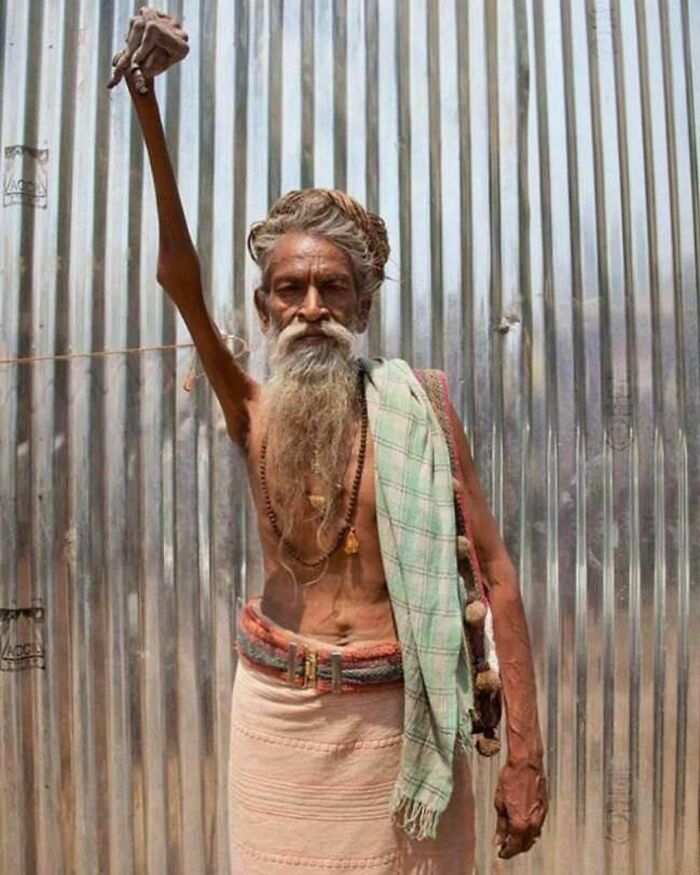
Image credits: historyphotographed
#81 16 Year Old Child Captured In 1945
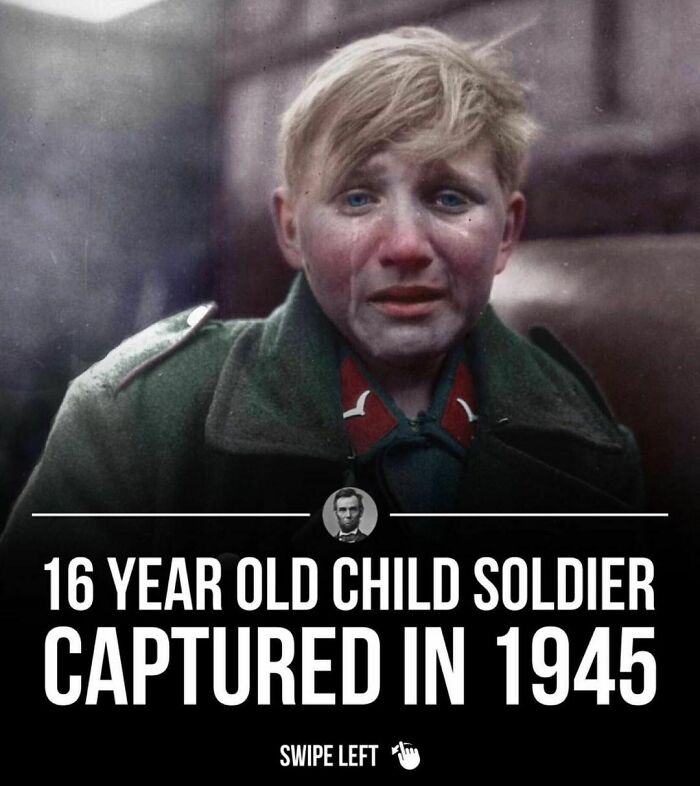
Image credits: historyphotographed
#82 The Asbury College Revival Of 1970 Lasted 185 Hours
On Wednesday morning a few young people gathered to worship God in the university chapel, and this service, which had time to end, has not yet ended. It’s over 180 hours and counting of spontaneous worship, prayer, preaching, and salvation of souls, just as it happened in 1905, the 1920s, and 1970. More or less than 1,500 people have passed through the site so far. “We (my wife and I) worshipped for 6 hours straight and it felt like only 15 minutes had passed, like time slowed or stopped on this move of God.” “There were no tunnels of fire, Gandalf’s sticks, or “intoxication in the spirit.” The presence of God is so gentle, comforting, warm and yet invigorating and strengthening.” Reports say students from more than 21 colleges have now arrived at Asbury University for revival services. The Asbury College Revival of 1970 lasted 185 hours

Image credits: historyphotographed
#83 The Deadliest Female Sniper To Ever Live, 1940's Lyudmila Pavlichenko Was A Sniper Who Served In The Soviet Union's Red Army During Ww2 And Got The Name "Lady Death" For Her High Kill Count
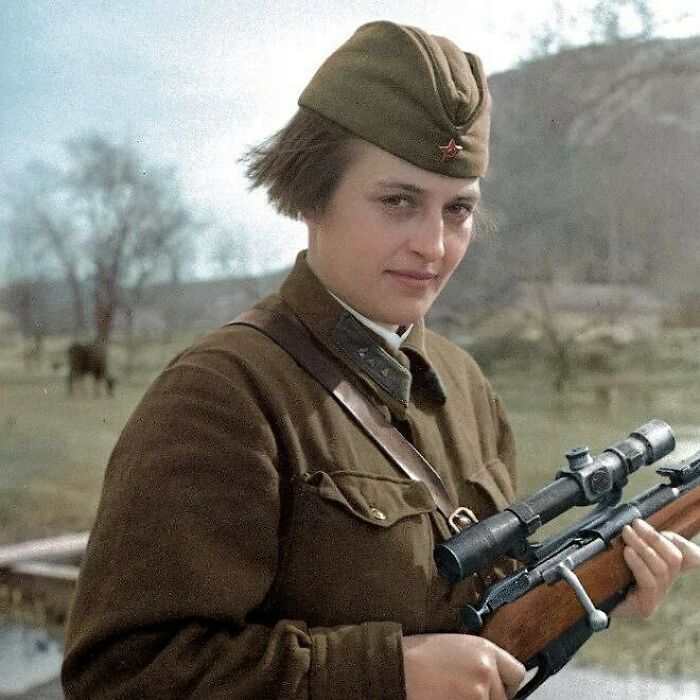
Image credits: historyphotographed
#84 In 1995 Duchess Camila’s Attempted To Recreate Lady Diana’s Famous Revenge Dress Which She Wore When Prince Charles Confessed Cheating On Her With Camila In 1994

Image credits: historyphotographed
#85 Archeologists From The National University Of San Marcos Have Unearthed A Mummy In Peru Estimated To Be 800 To 1,200 Years Old
The mummy was tied with ropes and had its hands covering its face, according to researchers, in what appears to be a southern Peruvian funeral custom. The mummy’s age indicates that it predates the Inca civilization. At its peak, inhabitants of the Inca Empire often mummified their leaders, incorporating their bodies in rituals and ceremonies as a way of extending revered figures’ influence after death.
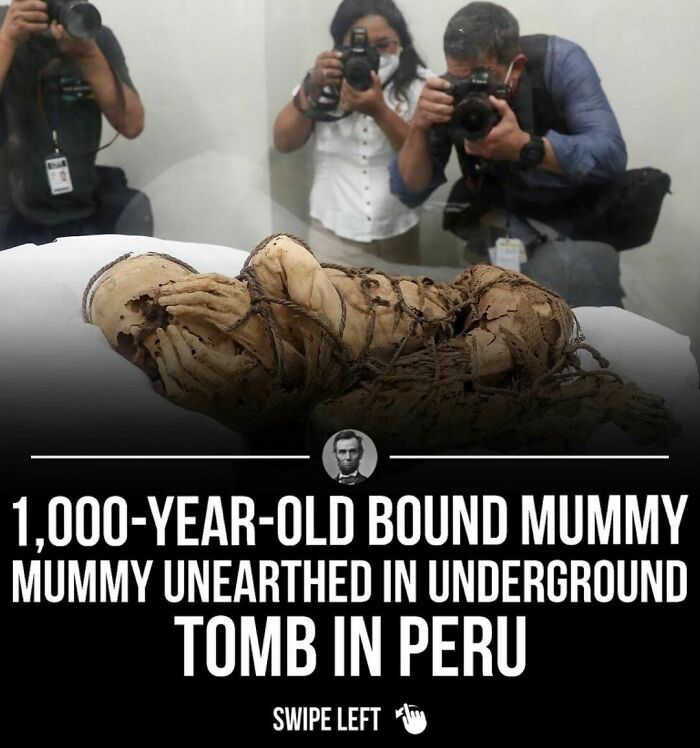
Image credits: historyphotographed
#86 Iran Beaches In The 70s Also For Fashion Trends Of History Follow
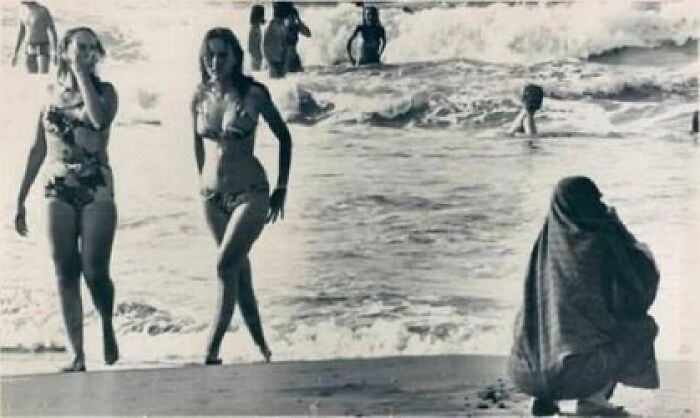
Image credits: historyphotographed
